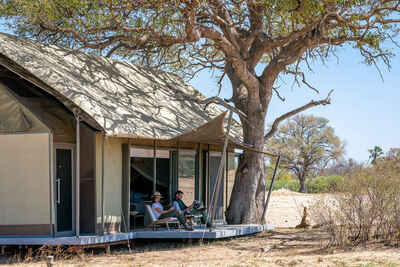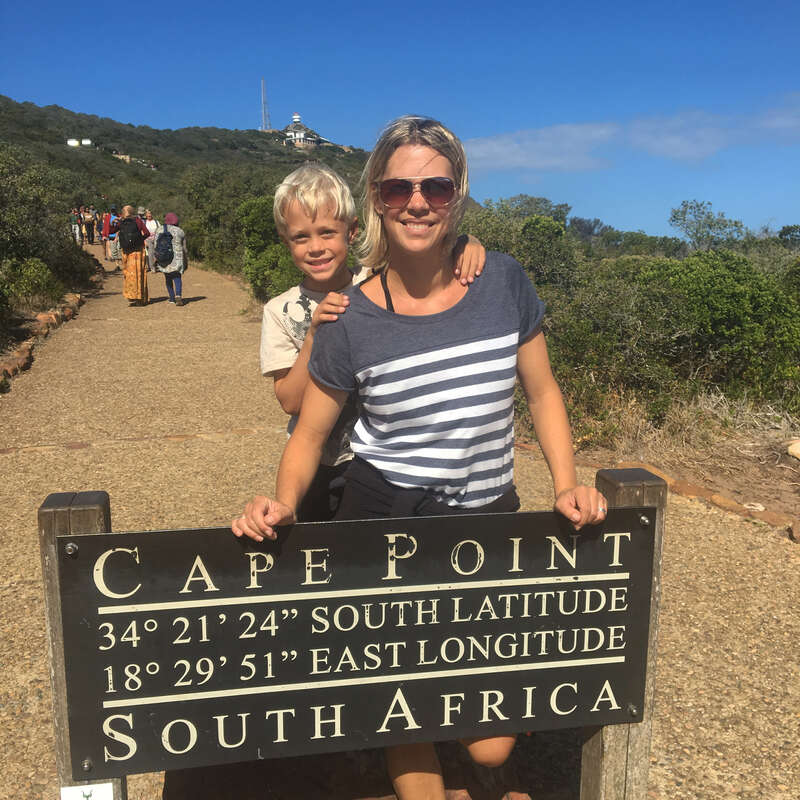About Linkwasha Camp
The private Linkwasha Concession within Zimbabwe’s renowned Hwange National Park is home to one of the park’s ...
... most luxurious offerings: Linkwasha Camp. The camp looks out across a pan with a permanent waterhole that attracts wildlife year round, and being in a private concession guests benefit from exclusive and flexible game viewing.
Modern and luxurious in design, Linkwasha provides a stunningly designed and exceptionally comfortable place to stay in a game-rich area of Hwange. Come to spoil yourself in a stylish and contemporary setting, and enjoy excellent wildlife sightings in an isolated part of the park. If you’re looking for a more traditional safari property, however, you would probably be better elsewhere – this certainly isn't a bushcamp.
Our view
Modern and luxurious in design, Linkwasha provides a stunningly designed and exceptionally comfortable place to stay in a game-rich area of Hwange. Come to spoil yourself in a stylish and contemporary setting, and enjoy excellent wildlife sightings in an isolated part of the park. If you’re looking for a more traditional safari property, however, you would probably be better elsewhere – this certainly isn't a bushcamp.
Accommodation
8 tents
Children
Best for 16+
Open
All year
Activities

4WD Safari

Birdwatching

Guided walking safari

Night drive

Private activities

Sleeping under the stars
Traveller reviews of Linkwasha Camp
4 real, un-edited reviews from Expert Africa's travellers.
Arrived 22 May 2024, 3 nights
"Linkwasha Camp review"
Overall rating: Excellent
Arrived 1 Sep 2023, 2 nights
"Linkwasha Camp review"
Overall rating: Excellent
Arrived 19 Oct 2022, 3 nights
"Linkwasha Camp review"
Overall rating: Excellent
Arrived 5 Jun 2016, 3 nights
"Luxury Safari"
Overall rating: Excellent
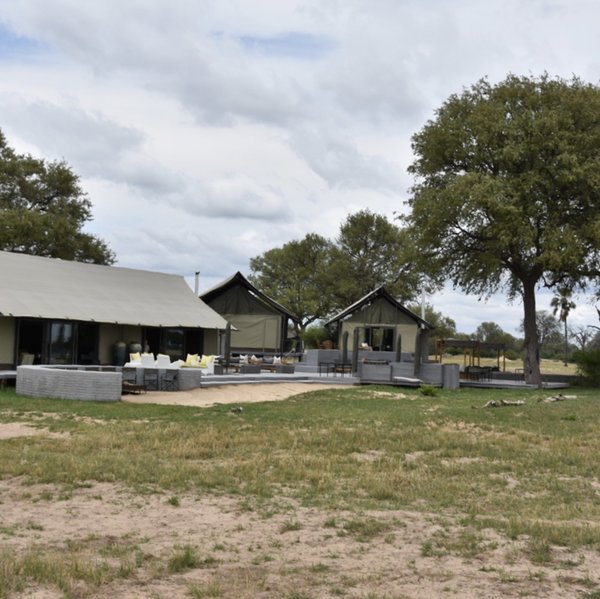
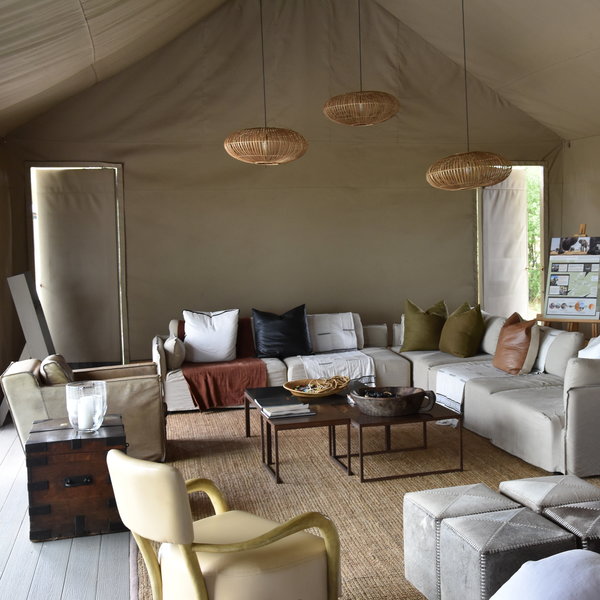
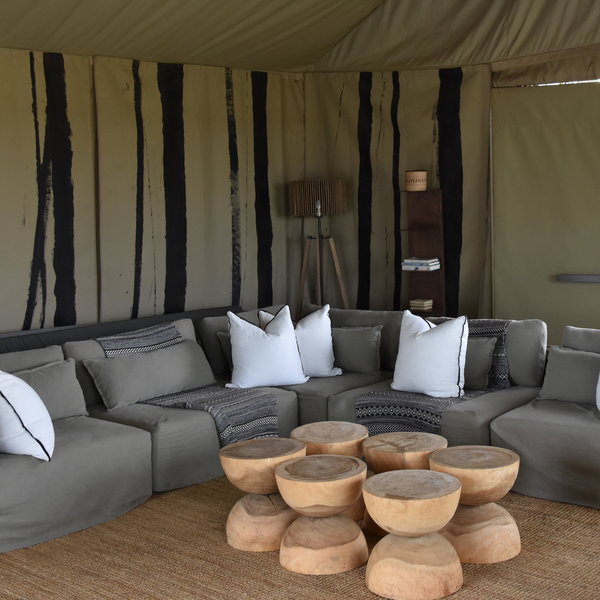
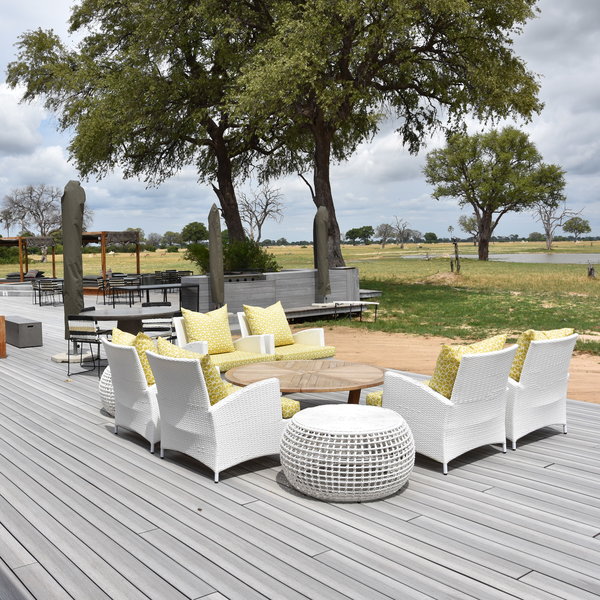
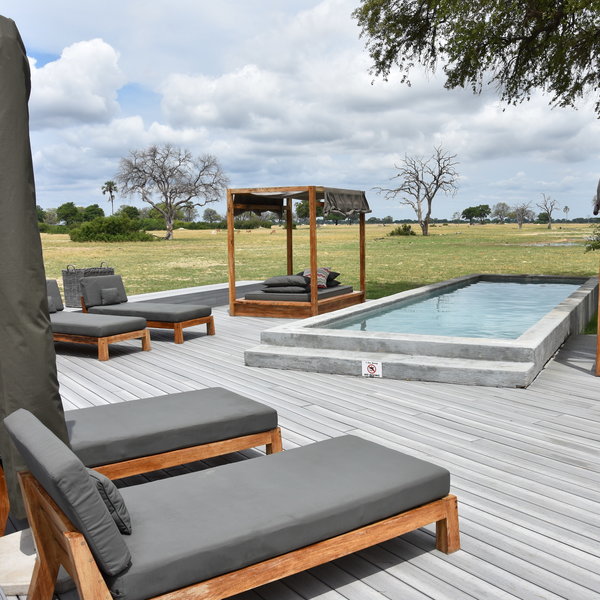
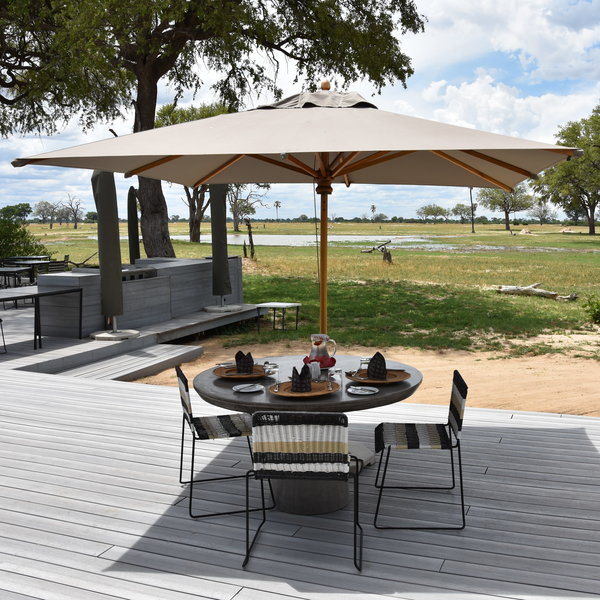
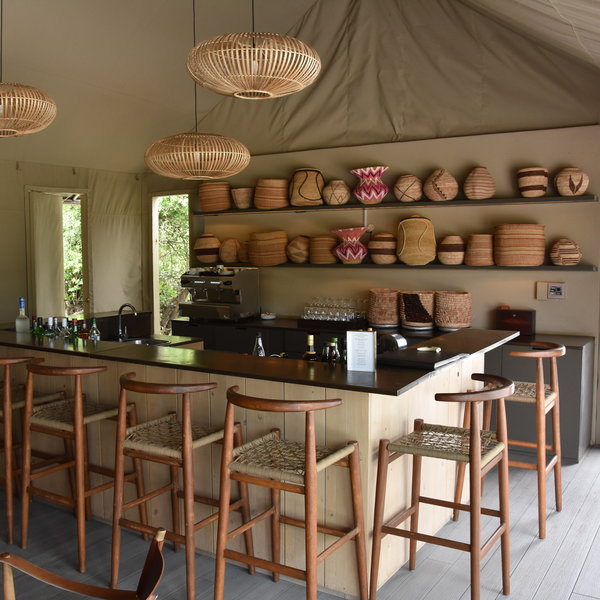
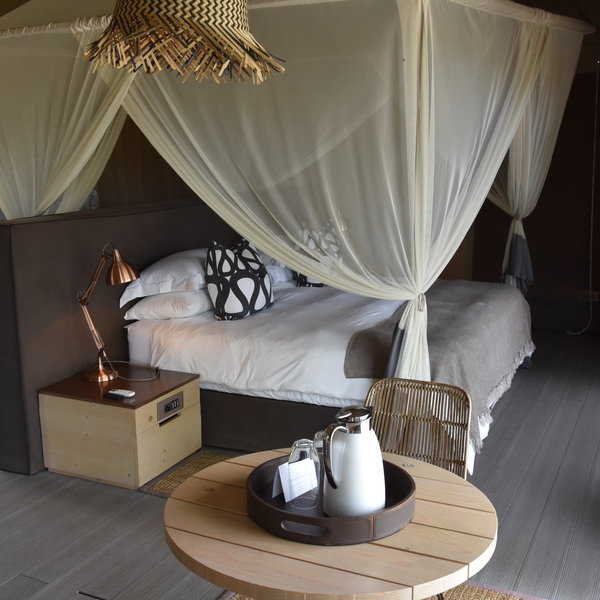
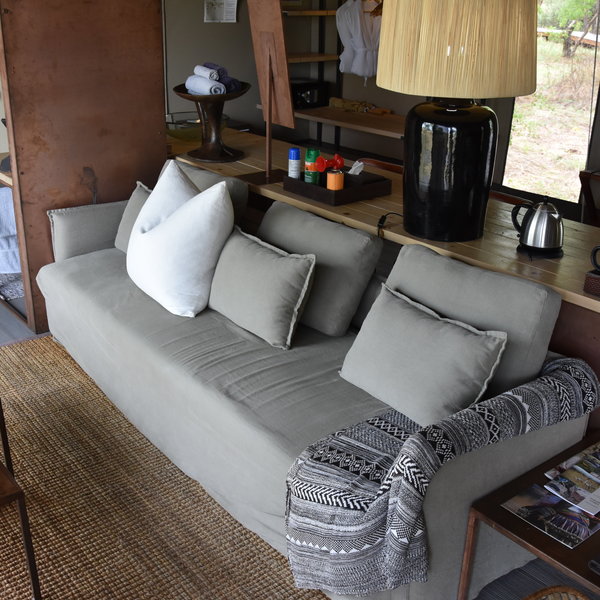
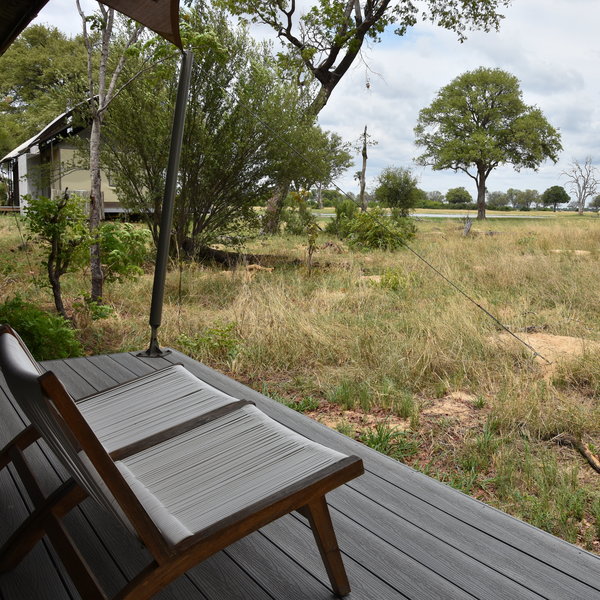
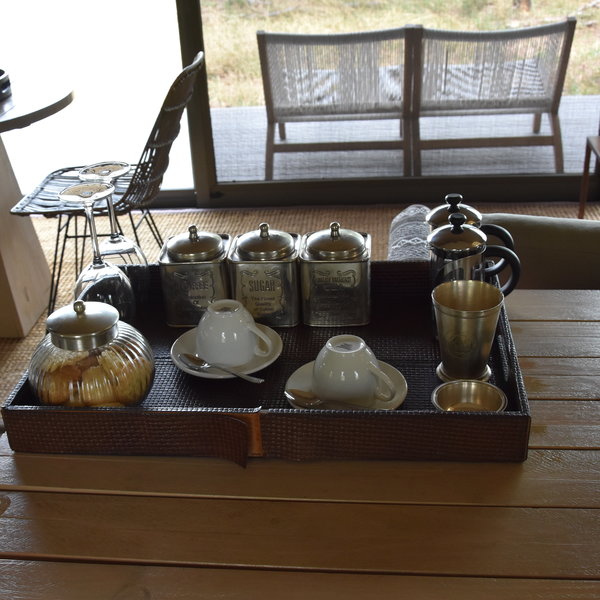
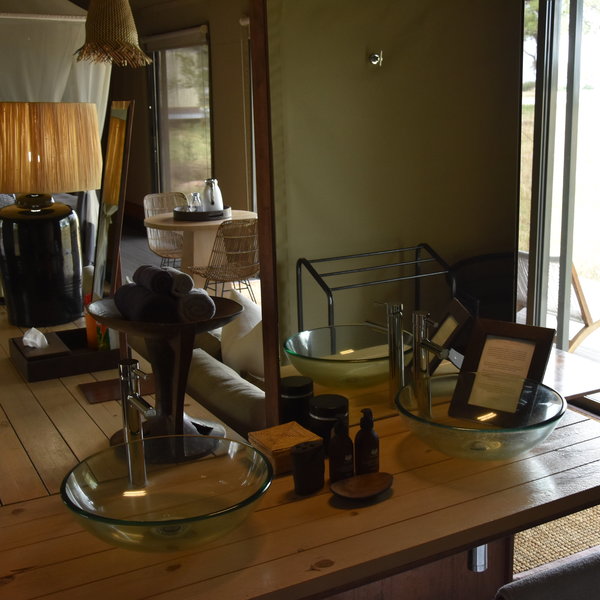
Expert Africa's gallery
When we travel we take lots of photos ourselves to give you a real and un-edited view of the safaris. See our 12 pictures of Linkwasha Camp to get the candid view.
View gallerySafaris visiting Linkwasha Camp
Just ideas, we'll always tailor-make a trip for you
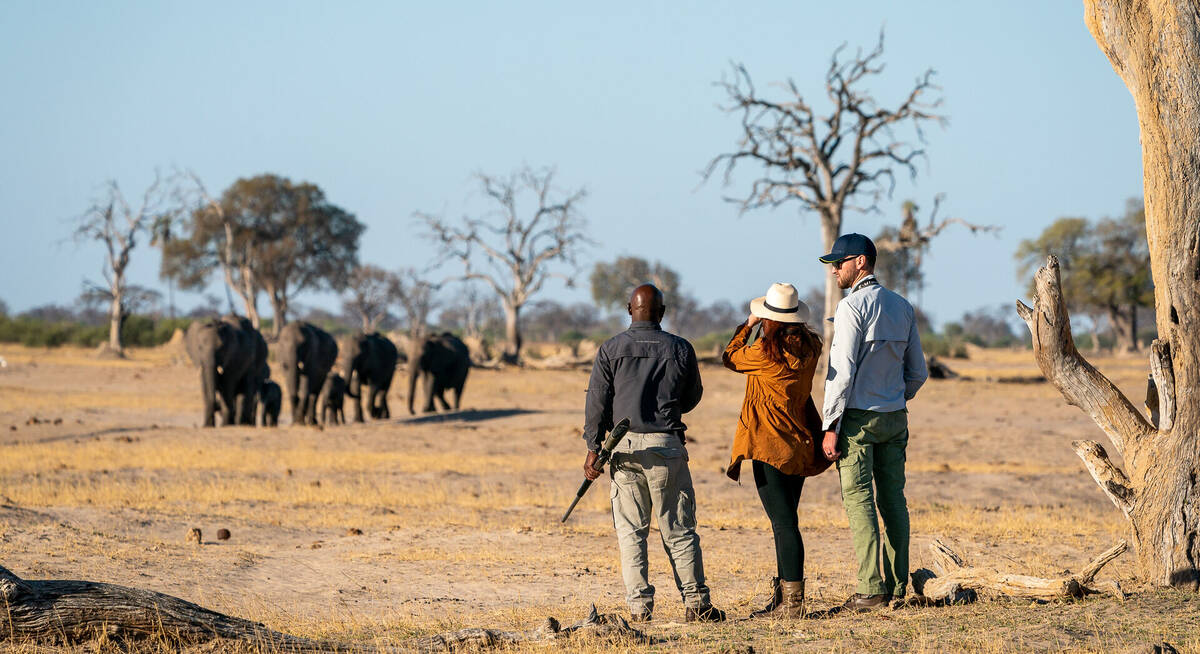
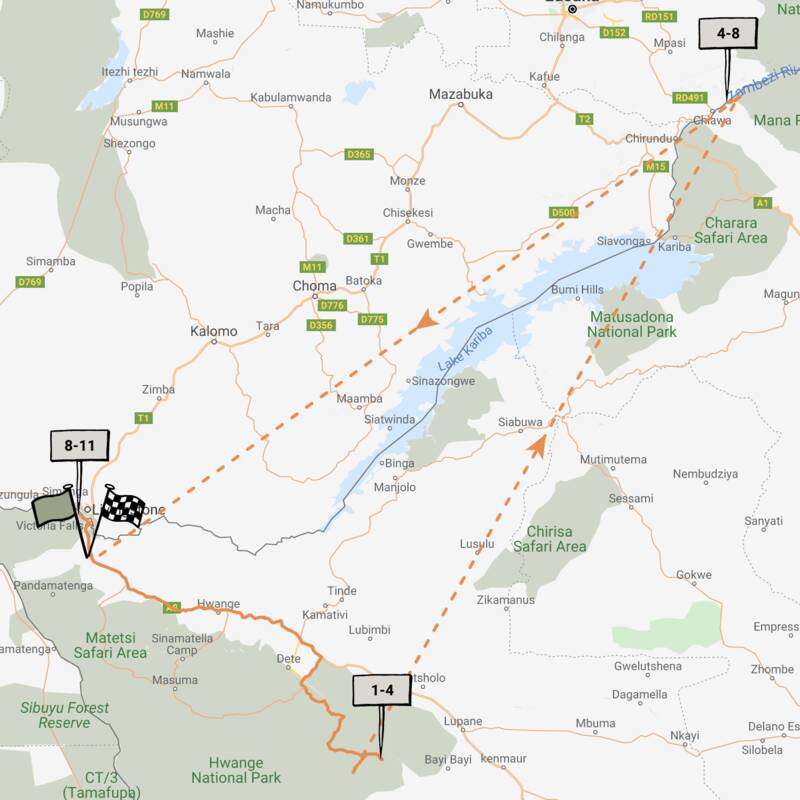
Nyala Safari
10 days • 3 locations • 1 country
VICTORIA FALLS AIRPORT TO VICTORIA FALLS AIRPORT
A superb luxury safari in iconic Hwange and Mana Pools national parks, staying in a pair of the finest safari camps in Zimbabwe, with a grand finale at Victoria Falls
Visiting Mana Pools, Hwange and 1 other area
US$15,710 - US$16,260 per person
Linkwasha Camp: Our full report
The private Linkwasha Concession within Zimbabwe’s renowned Hwange National Park is home to one of the park’s ...
... most luxurious offerings: Linkwasha Camp. The camp looks out across a pan with a permanent waterhole that attracts wildlife year round, and being in a private concession guests benefit from exclusive and flexible game viewing.
The Linkwasha Concession is dominated by Kalahari savannah and acacia woodlands, but the varied environment of eastern Hwange also features tall teak forests and occasional palm islands. Linkwasha Camp shares its concession with vehicles from its sister properties located on the neighbouring Makalolo Concession, Davison’s Camp, Makalolo Plains Camp and Little Makalolo Camp, although this is a huge area so seeing other vehicle in the concession is relatively rare.
The overall design of Linkwasha is modern and stylish, with an open-air feel. The lines are very clear cut, but the colour scheme of pale greys and creams helps the camp to blend into the surrounding bush.
The camp’s eight en-suite tents – including one family tent – are set on either side of the main area, all overlooking the pan. Or add a touch of adventure to your safari and opt for a night sleeping out on a deck under the stars.
Inside, the tents are huge, their glass and mesh sliding doors affording panoramic views of the surrounding landscape and allowing plentiful natural light into the open-plan rooms. In the centre of each is a lounge area with a comfortable sofa, a long writing desk, a tea- and coffee-making station and a complimentary minibar, while the bed – a king-size or twins – is off to one side. Twin glass basins are also in the main part of the tent, but there are separate cubicles for the toilet and shower – with the glass front of the shower cubicle opening up to create a semi-outdoor experience.
Raised platforms connect each tent to the multi-level decks of Linkwasha’s main area. Here, various tables and chairs create a central hub for alfresco lunches and afternoon teas, with views over the surrounding plains and the waterhole. A firepit in the sandy soil, surrounded by canvas directors' chairs, provides an atmospheric location for pre- or post-dinner drinks, and a large plunge pool provides welcome relief during the hotter months.
There are three indoor areas here: an open-plan, open-sided library, lounge and bar; a smart dining area where evening meals are served at individual tables; and an enclosed “winter lounge”, with comfortable sofas and an open fireplace, providing a cosier spot to relax during the colder mornings and nights (late May to early August).
Guests at Linkwasha Camp go out on twice-daily activities, with both walking safaris and game drives possible with well-qualified Zimbabwean professional guides. Linkwasha's location, at the eastern end of Hwange National Park, permits easy access to the Ngamo Plains, which is well known for its large herds of elephant, buffalo and plains game, as well as numerous predators such as lion and cheetah. Guests also benefit from the camp's location within the Linkwasha Private Concession, which allows for more flexible activities than are possible within the park itself, such as spotlit night drives, and also offers more exclusive wildlife viewing. When we last stayed here we had first-hand experience of this flexible approach. It was during the heat of the day, siesta time, and we were enjoying the pool when our guide asked if we would like to see some cheetah that had been spotted by one of the guides. Of course we would! We jumped into a vehicle and spent a happy couple of hours watching two brothers unsuccessfully hunt, just minutes from the lodge. When we went back later in the day they had disappeared.
Activities
4WD Safari
Birdwatching
Guided walking safari
Night drive
Private activities
Sleeping under the stars
Families & children
- Attitude towards children
- Linkwasha welcomes children aged six years and older. Note, however, that the camp usually insists that guests with children under 12 hire a private vehicle for game drives at an extra cost. In addition, children under the age of about 16 are unlikely to be allowed on walking safaris.
- Property’s age restrictions
- Minimum age six years. Children under the age of about 16 are unlikely to be allowed on walking safaris.
- Special activities & services
- None
- Equipment
- The camp has a two-bedroom family tent, but no cots, high chairs or special equipment for children.
- Generally recommended for children
- Despite the family tent we felt that there was a vey adult feel to Linkwasha and it therefore wouldn’t suit younger children.
- Notes
- This is an open safari camp and big game is likely to pass through. There is also an unfenced pool in the main area. Children must be supervised by a parent at all times.
Food & drink
- Usual board basis
- Full Board & Activities
- Food quality
- The food at Linkwasha on all our recent visits has always been very good indeed.
An early-morning continental breakfast is set up around the campfire before your morning activity. We had a choice of cereals, toast cooked over the fire, and hot porridge, as well as tea and coffee.
A buffet brunch is served on your return from the morning activity. We chose a fish skewer with salads and falafel, but there was also a vegetarian option.
Following our evening activity, dinner started with an interesting and tasty coconut soup, followed by fillet steak cooked to order, with roast vegetables and roast potatoes. For dessert we had a very tasty chocolate pudding. - Dining style
- Mixture of group dining and individual tables
- Dining locations
- Indoor and Outdoor Dining
- Further dining info, including room service
- Private dining on the deck of your tent is available on request.
- Drinks included
- Rates include most drinks, with the exception of champagne and top-shelf spirits. The tap water in camp is filtered and safe to drink, although bottled water is also readily available.
Our travellers’ wildlife sightings from Linkwasha Camp
Since mid-2018, many of our travellers who stayed at Linkwasha Camp have kindly recorded their wildlife sightings and shared them with us. The results are below. Click an animal to see more, and here to see more on our methodology.

100% success

100% success

100% success

100% success

100% success

100% success

100% success

100% success

100% success

100% success

67% success

50% success

50% success

50% success

33% success

0% success

0% success

0% success
Getting there
- Location
- Hwange National Park, Zimbabwe
- Ideal length of stay
- We’d recommend 3-4 nights here.
- Directions
- Travellers can reach Linkwasha by road or air. The road transfer takes 3–4 hours from Victoria Falls town, and incorporates 1–2 hours on a game drive within Hwange National Park. Alternatively, light aircraft can land at Makalolo airstrip, followed by a 4WD transfer to camp.
- Accessible by
- Fly-and-Transfer
Special interests
- Luxury safaris
- At Linkwasha Camp you can experience the wildlife-rich Ngamo Plains while enjoying impeccable service, and the chance to recline on a unique star bed whilst admiring the clear African sky. This camp is as stunning as its setting and perfect for an unforgettable luxury safari.
- See ideas for Luxury safaris in Zimbabwe
Communications
- Power supply notes
- The lodge runs primarily on solar power, but there are back-up generators for when these aren’t producing enough energy for the camp.
- Communications
- There's no cellphone signal or WiFi at Linkwasha, but the camp does have a satellite phone in case of emergency.
- TV & radio
- There’s no TV, radio or cellphone signal here.
- Water supply
- Borehole
- Water supply notes
- Bathrooms have fully plumbed showers with hot and cold running water, and flushing toilets.
Health & safety
- Malarial protection recommended
- Yes
- Medical care
- The closest accessible doctor is in Hwange town or Victoria Falls – which would be either a short flight away, or many hours in a vehicle. In case of emergency the guides and camp managers are trained in first aid.
- Dangerous animals
- High Risk
- Security measures
- Guides and managers sleep at Linkwasha, and guests are provided with an emergency horn to raise the alarm in case of emergency.
- Fire safety
- There are fire extinguishers in the tents and main areas.
Useful info
- Disabled access
- On Request
- Laundry facilities
- A complementary laundry service is available.
- Money
- There are safes in all the tents.
- Accepted payment on location
- Money isn't usually needed in camp, as most things are included in the cost. We recommend that you tip in US dollars if possible, and there is a communal tip box for this purpose. Check to see if your guide is tipped separately.
Plan and book your trip with Expert Africa
All of our trips are tailor-made, so we'll always adapt them to suit you. Talk to an Expert and let us plan and arrange your perfect trip.

Talk to an Expert
Call or email us now! We’ll match you with the Specialist in our team who is best suited to help you. Then together we can start planning your trip.

Set up your itinerary
Based on our experience and your ideas, your specialist will create a detailed, costed itinerary. We’ll refine it together, until we have a trip that you’re perfectly happy with.

Prepare for your trip
The same Specialist will make the seamless arrangements for your trip, send you detailed travel documents, and be available to answer any questions before you depart.

Travel with peace of mind
After you set off, you’ll be cared for by our partners in Africa, most of whom have worked with Expert Africa for decades. And if you ever need us urgently, we’re available 24/7.

When you return
We love to learn about your trip, and so will always be grateful if you’ve the time to give feedback to your Specialist when you return.
Linkwasha Camp's location
Look closer at the environment and surroundings of Linkwasha Camp.
Other lodges in Hwange National Park
Alternative places to stay in this same area.
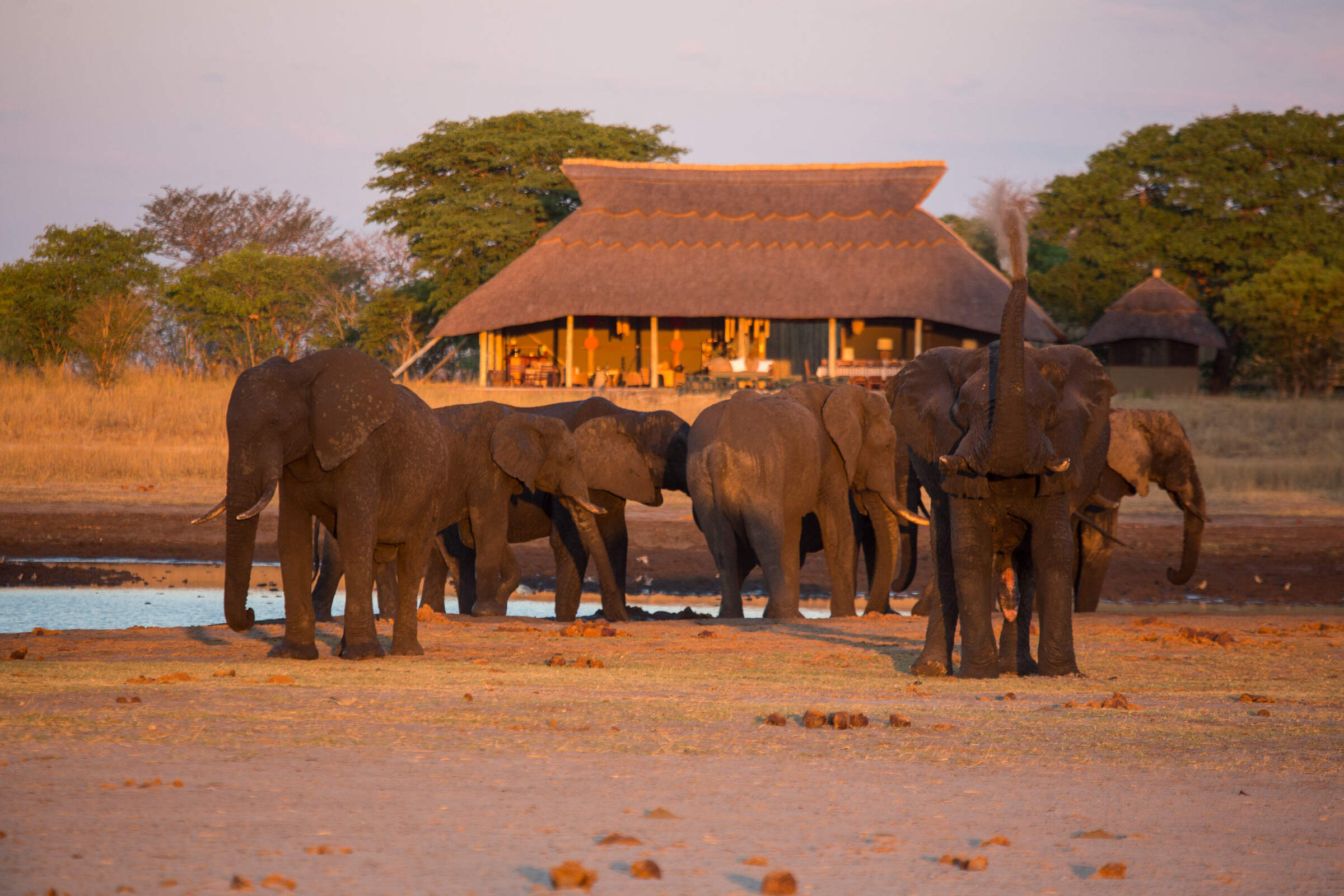
Camp Hwange
Overlooking a waterhole in a remote part of Hwange National Park, Camp Hwange offers great guiding in a pristine wilderness at reasonable prices.
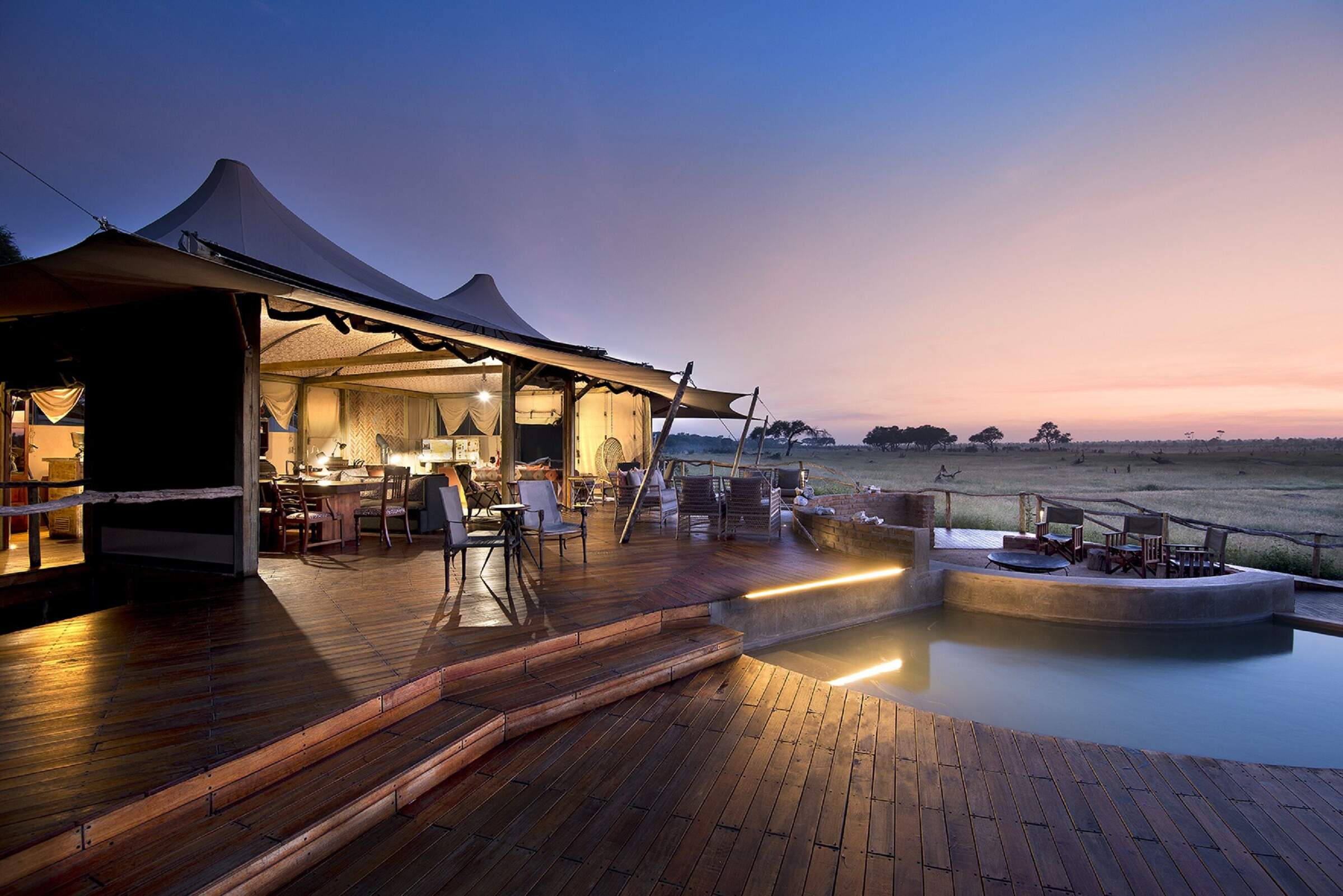
Somalisa Camp
Somalisa is a luxurious, yet remote, safari camp in Hwange National Park, offering walking safaris and game drives.
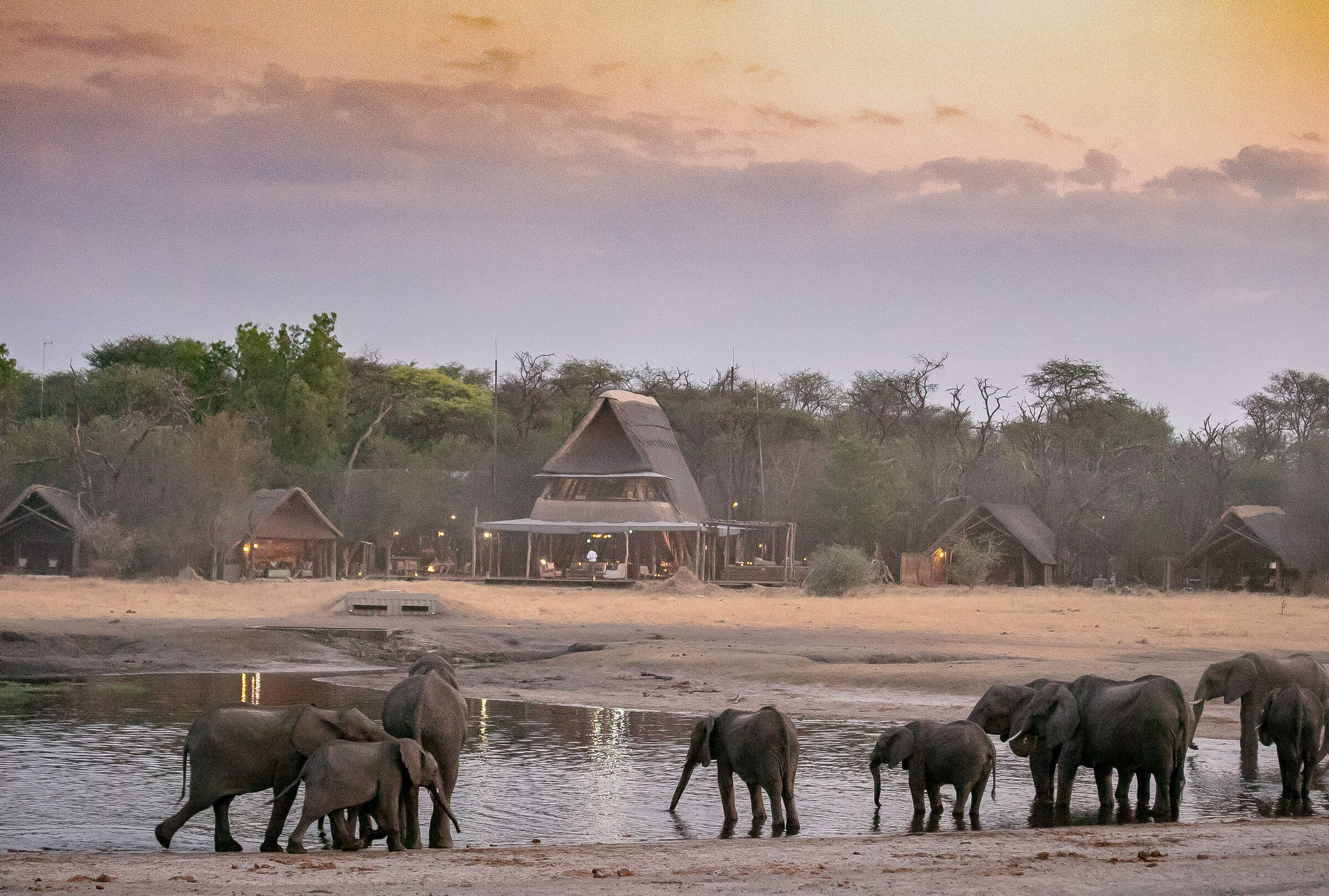
The Hide
Located in a small, private concession, The Hide is a relaxed and comfortable camp offering submerged hides and great family accommodation.
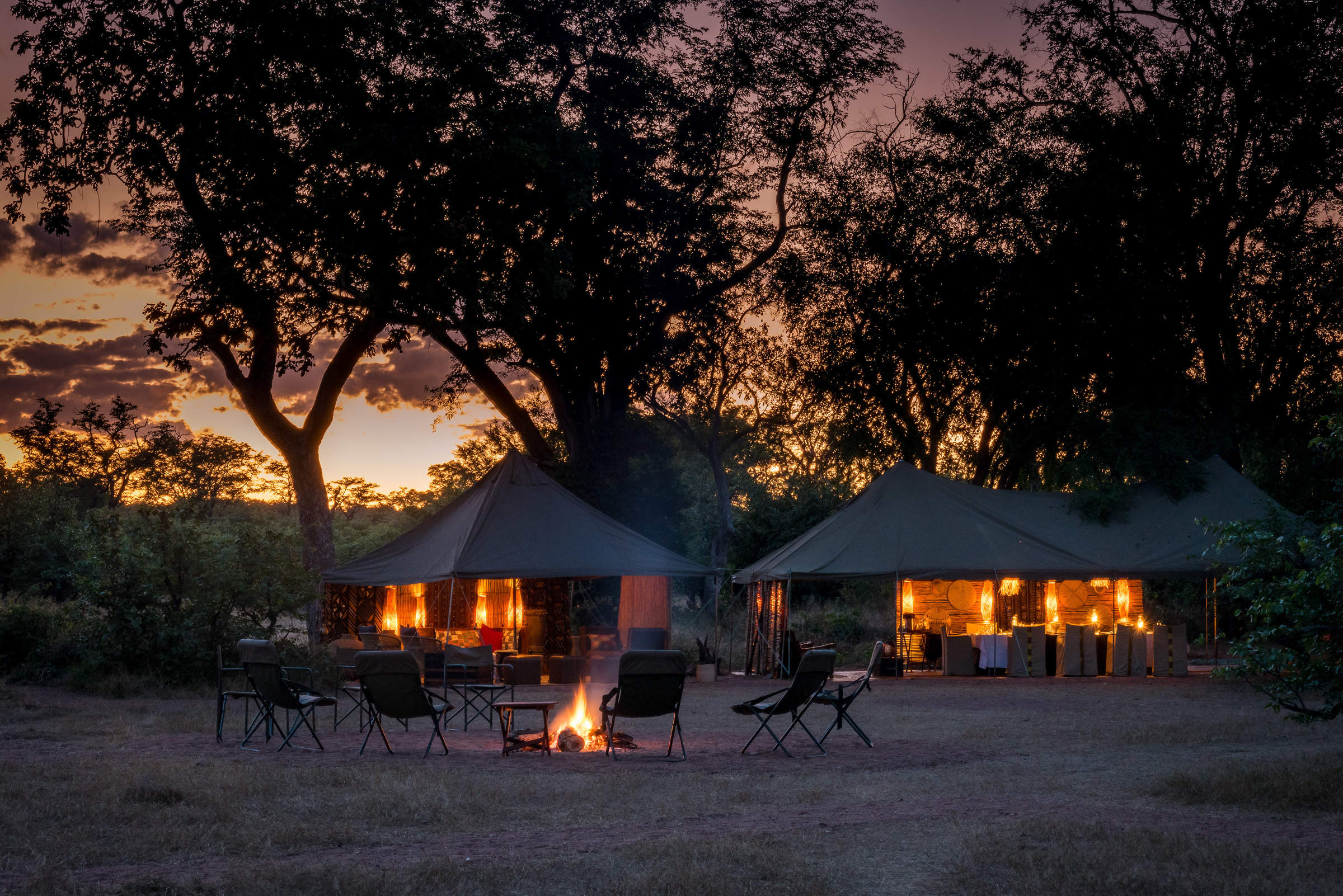
Hwange Bush Camp
Hwange Bush Camp is a small seasonal camp offering comfortable tents, great food, and superb guiding, and is often used by exclusive groups.
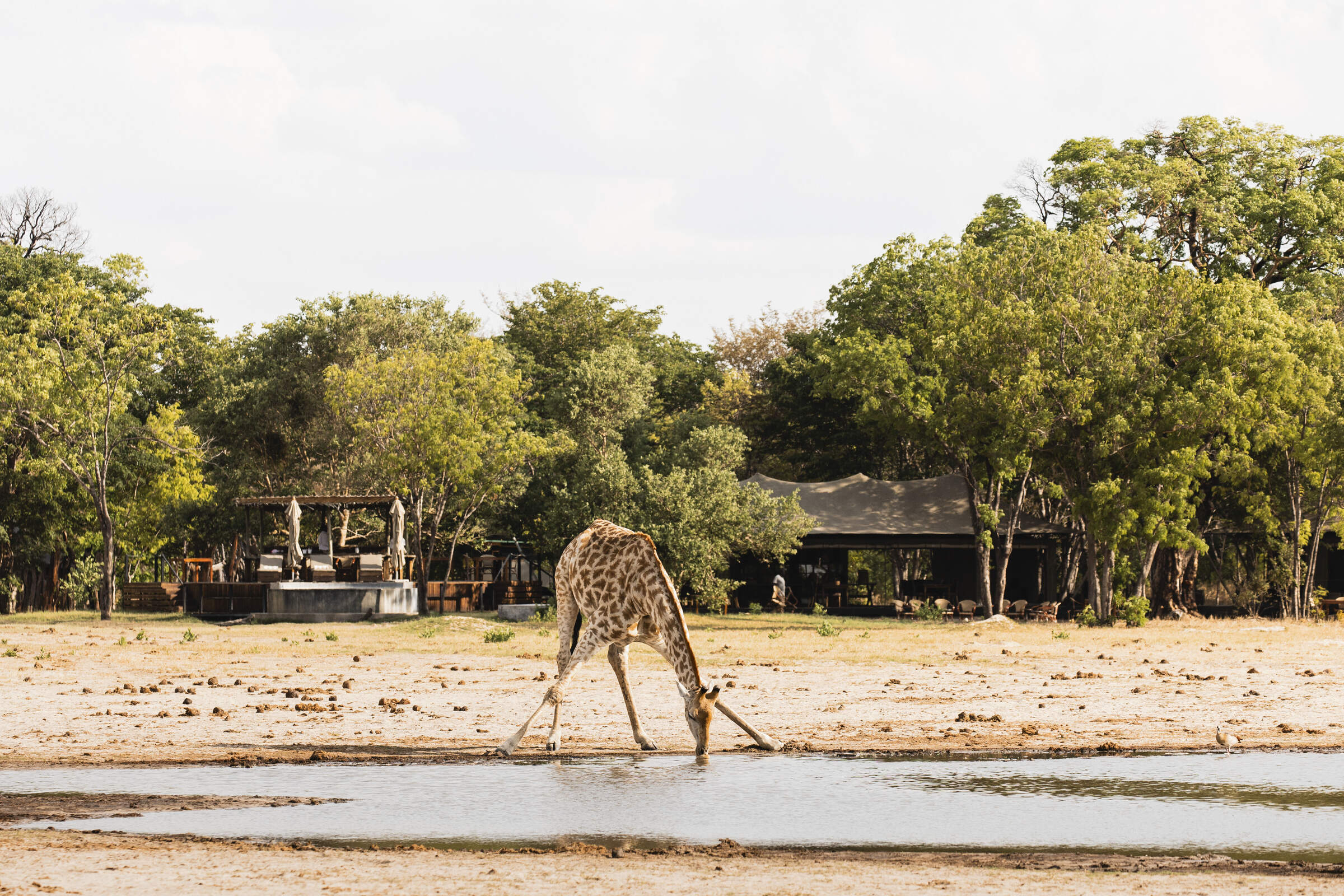
Little Makalolo Camp
Tucked away in Hwange National Park overlooking a waterhole, Little Makalolo Camp combines top guiding with excellent wildlife watching.
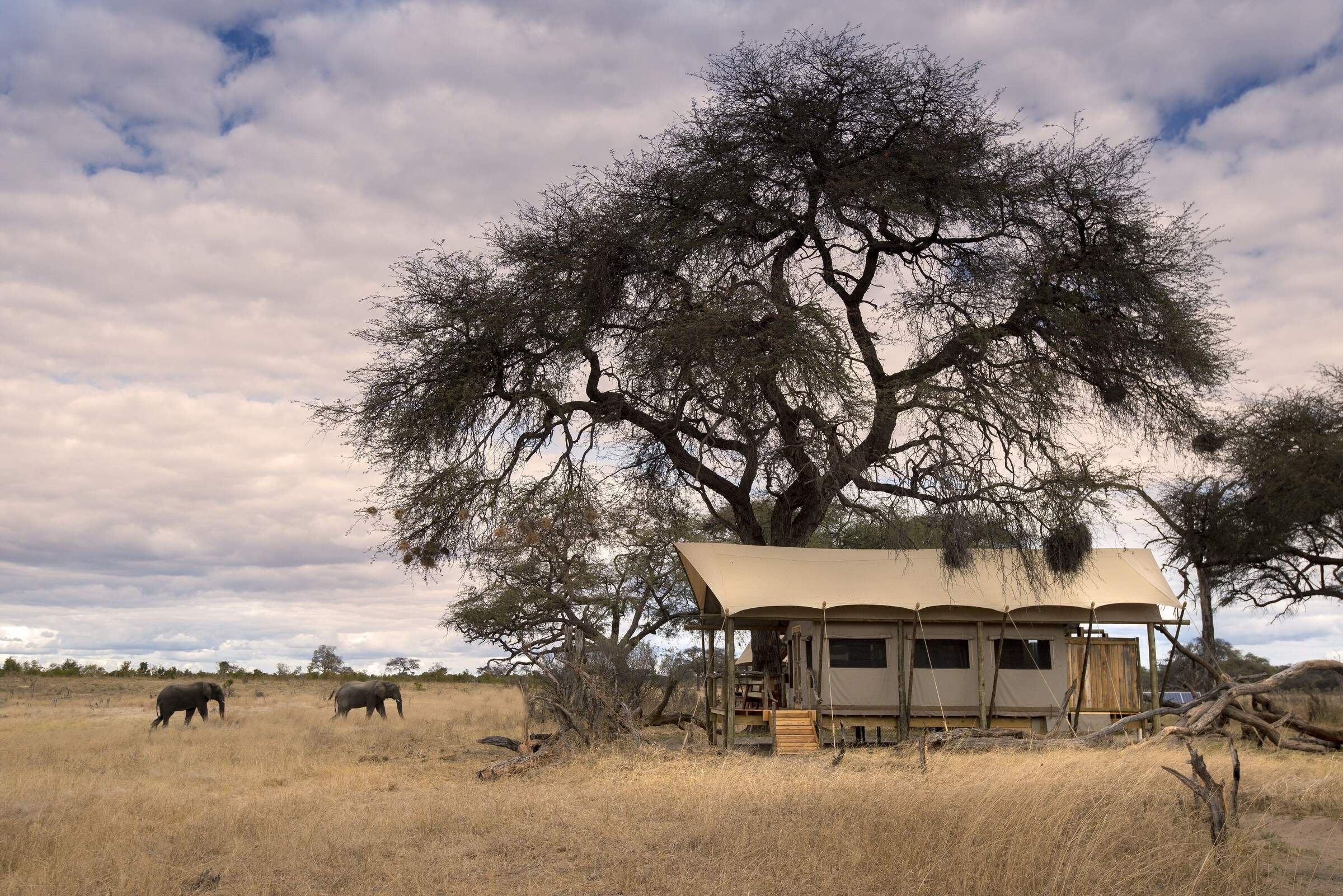
Somalisa Expeditions
A simple but stylish camp, Somalisa Expeditions sits in the heart of Hwange National Park, offering walking safaris and game drives.
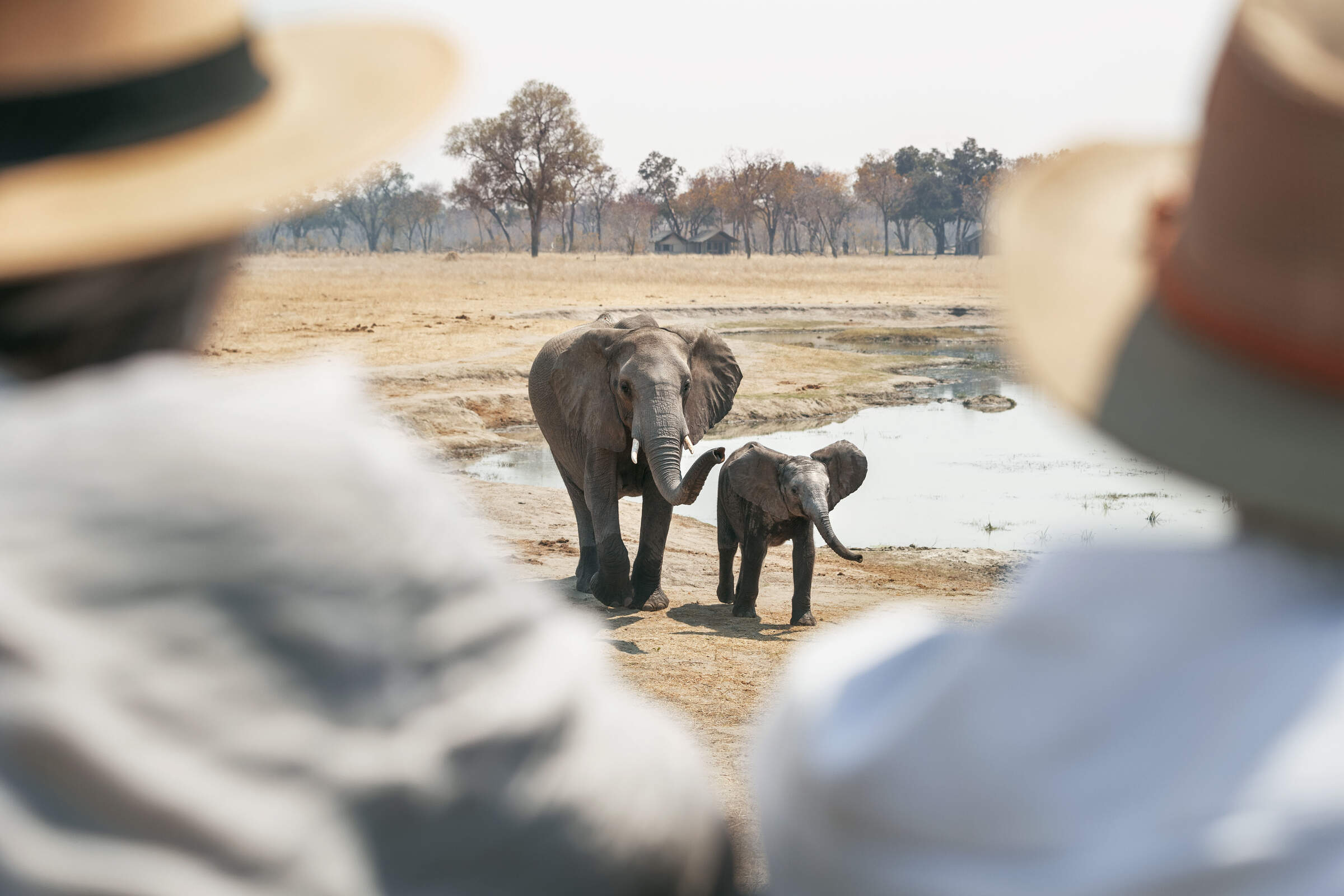
Davison's Camp
Within the Linkwasha Concession, Davison's Camp offers superb value for money, morning walking safaris and spot-lit drives after dark.
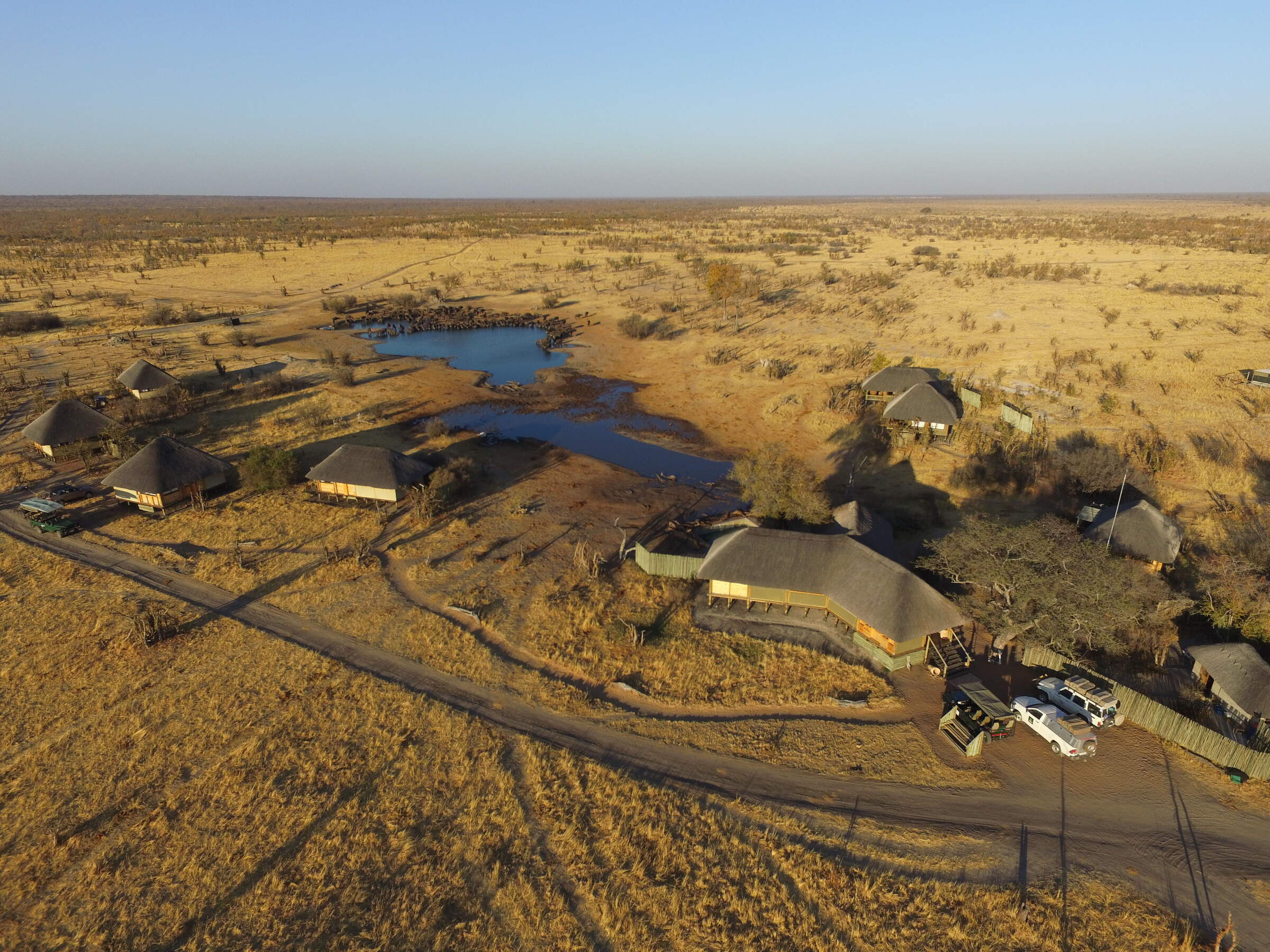
Nehimba Lodge
Nehimba is a comfortable, good-value camp in a remote area of Hwange National Park, teeming with wildlife.
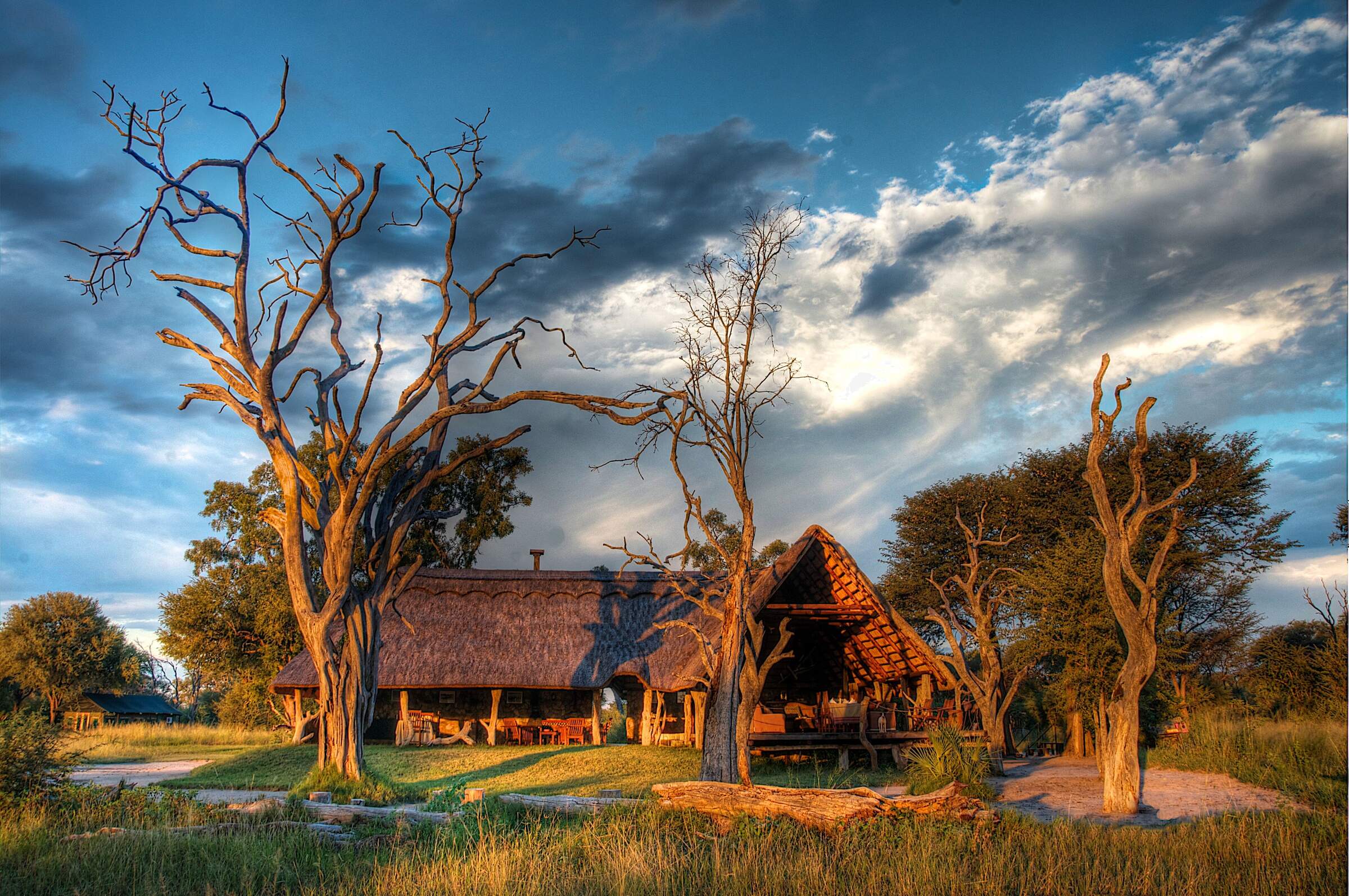
Bomani Tented Lodge
Bomani is a down-to-earth lodge with a range of activities in a remote region of western Zimbabwe, adjacent to Hwange National Park.
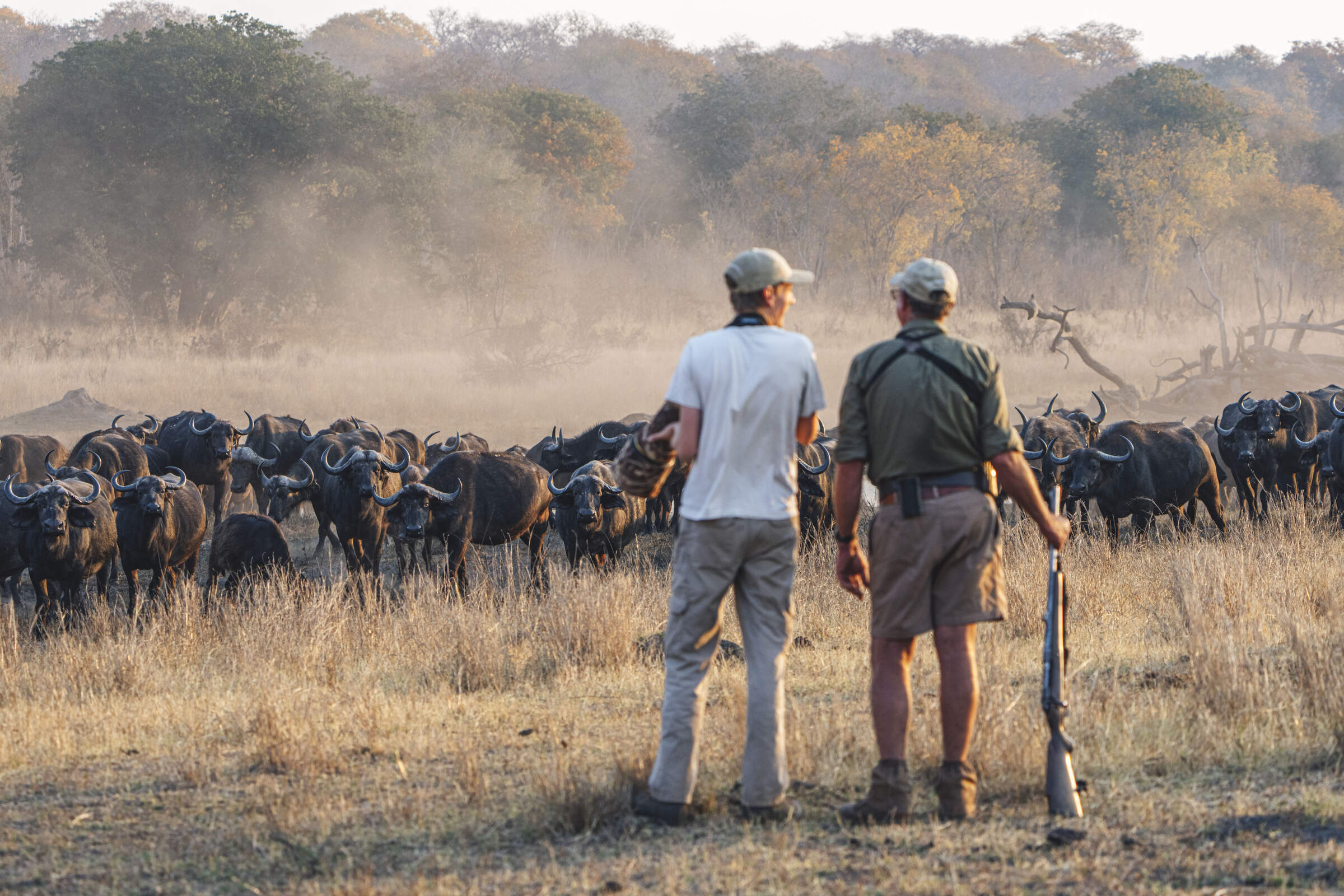
Khulu Bush Camp
Just outside Hwange National Park, Khulu Bush Camp features a waterhole popular with wildlife, especially elephants and offers excellent value for money.
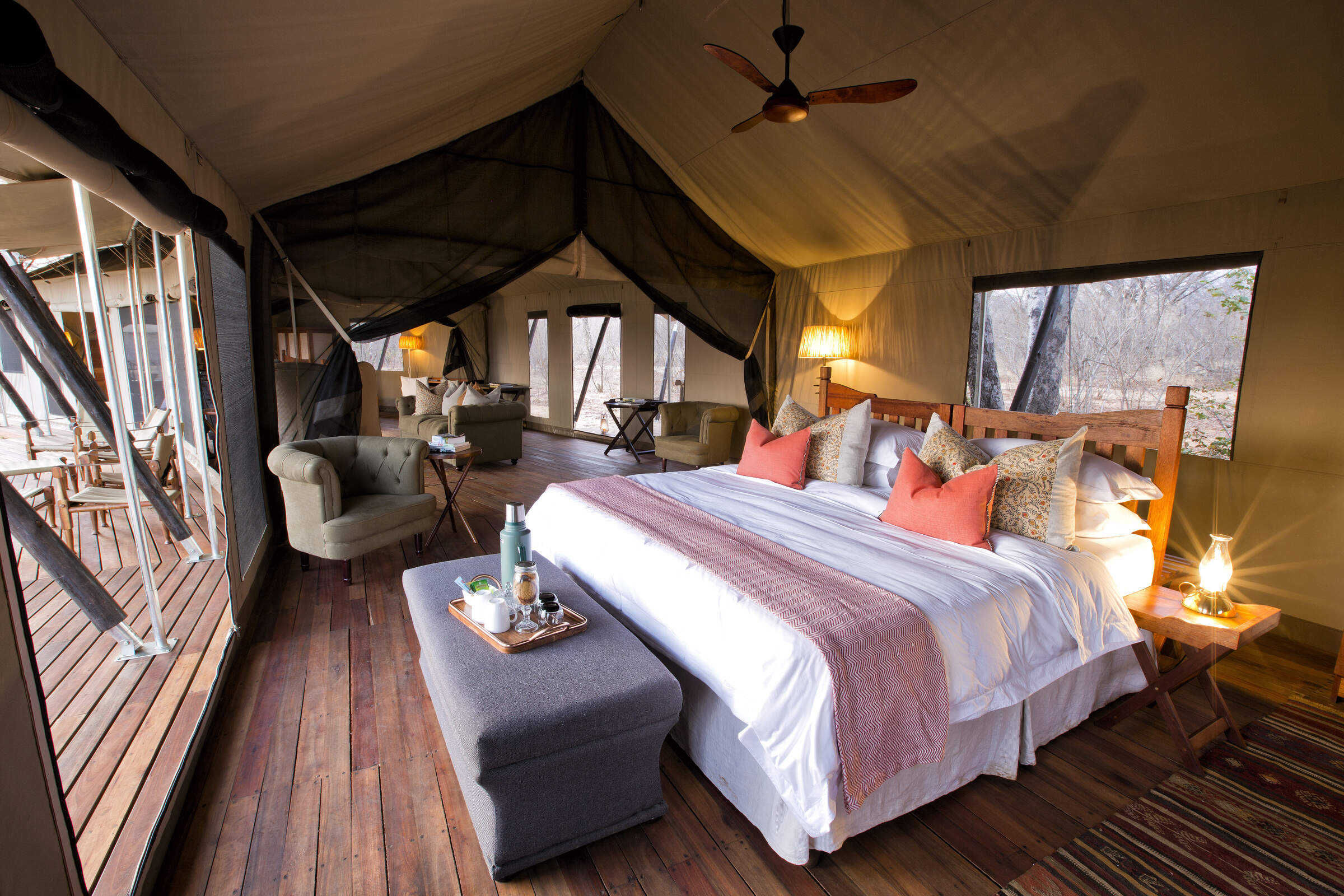
Verney's Camp
Verney's Camp is one of the newest offerings in Hwange, located in the wildlife rich, open landscape in the south-eastern section of the park.
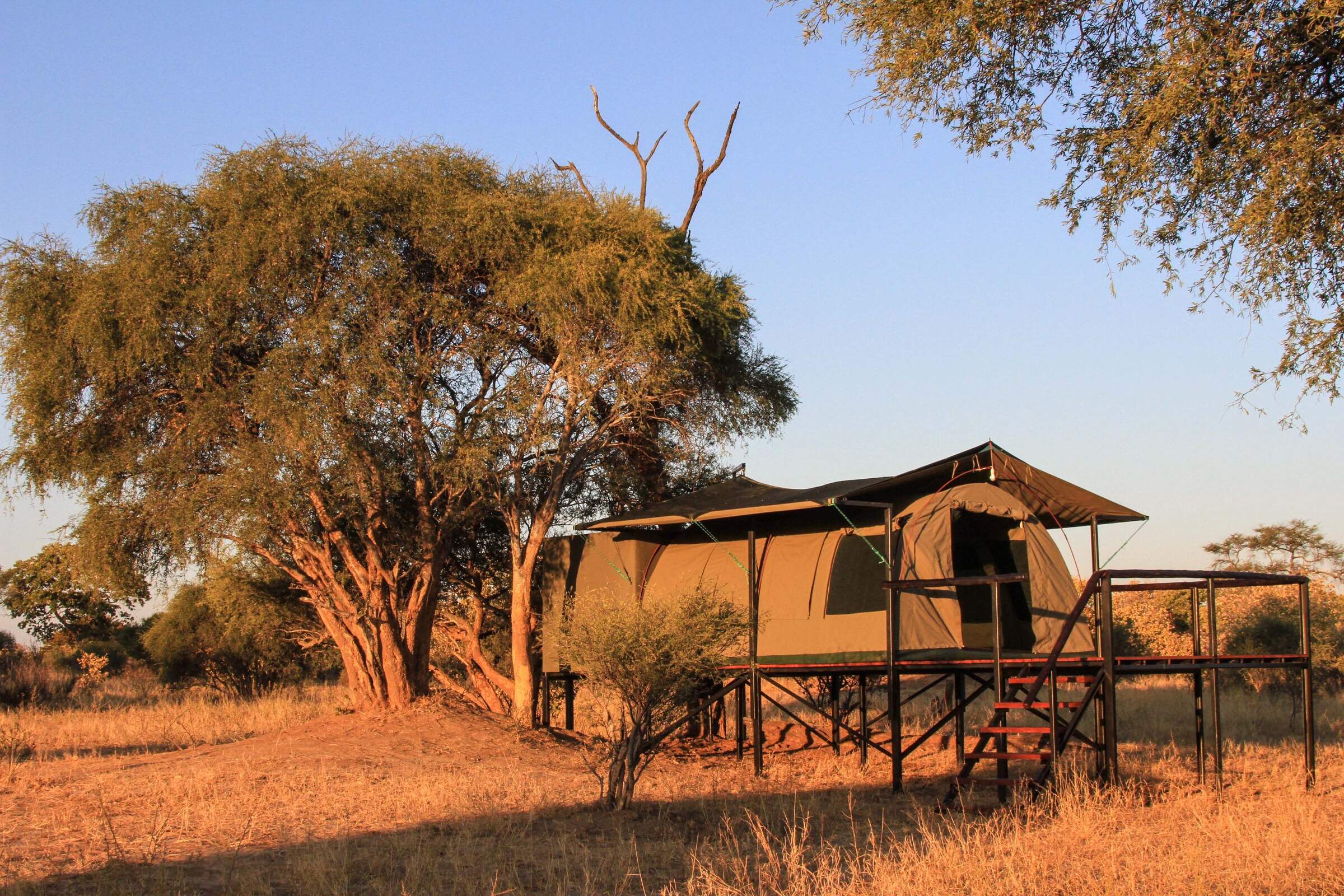
Jozibanini Camp
Remote and rugged, Jozibanini is one of the most remote camps in Zimabwe's largest National Park. Stay here for a real wilderness experience.
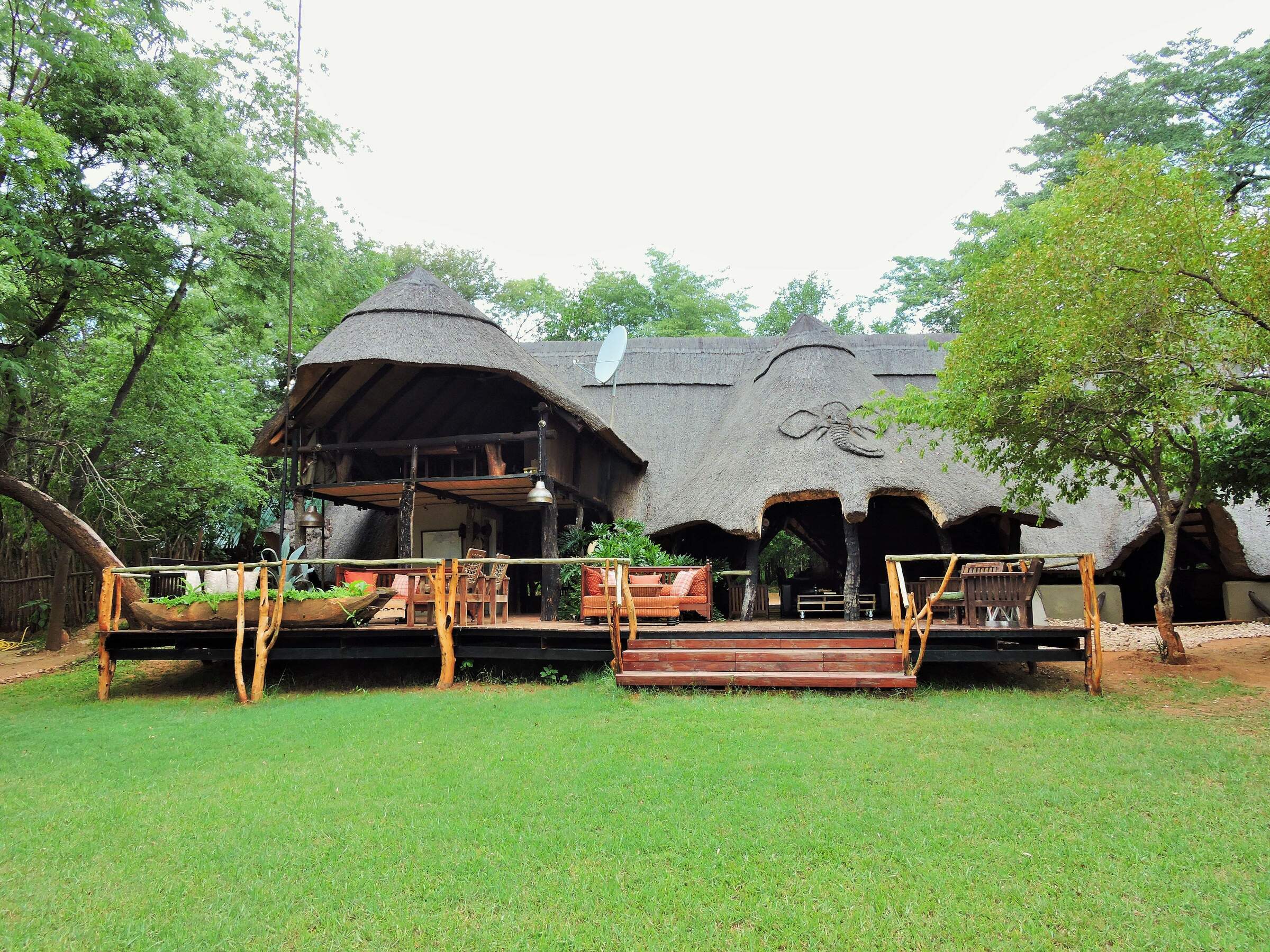
Ivory Lodge
Just outside Hwange National Park, the small Ivory Lodge is a great place to see large herds of elephant as well as smaller plains game.
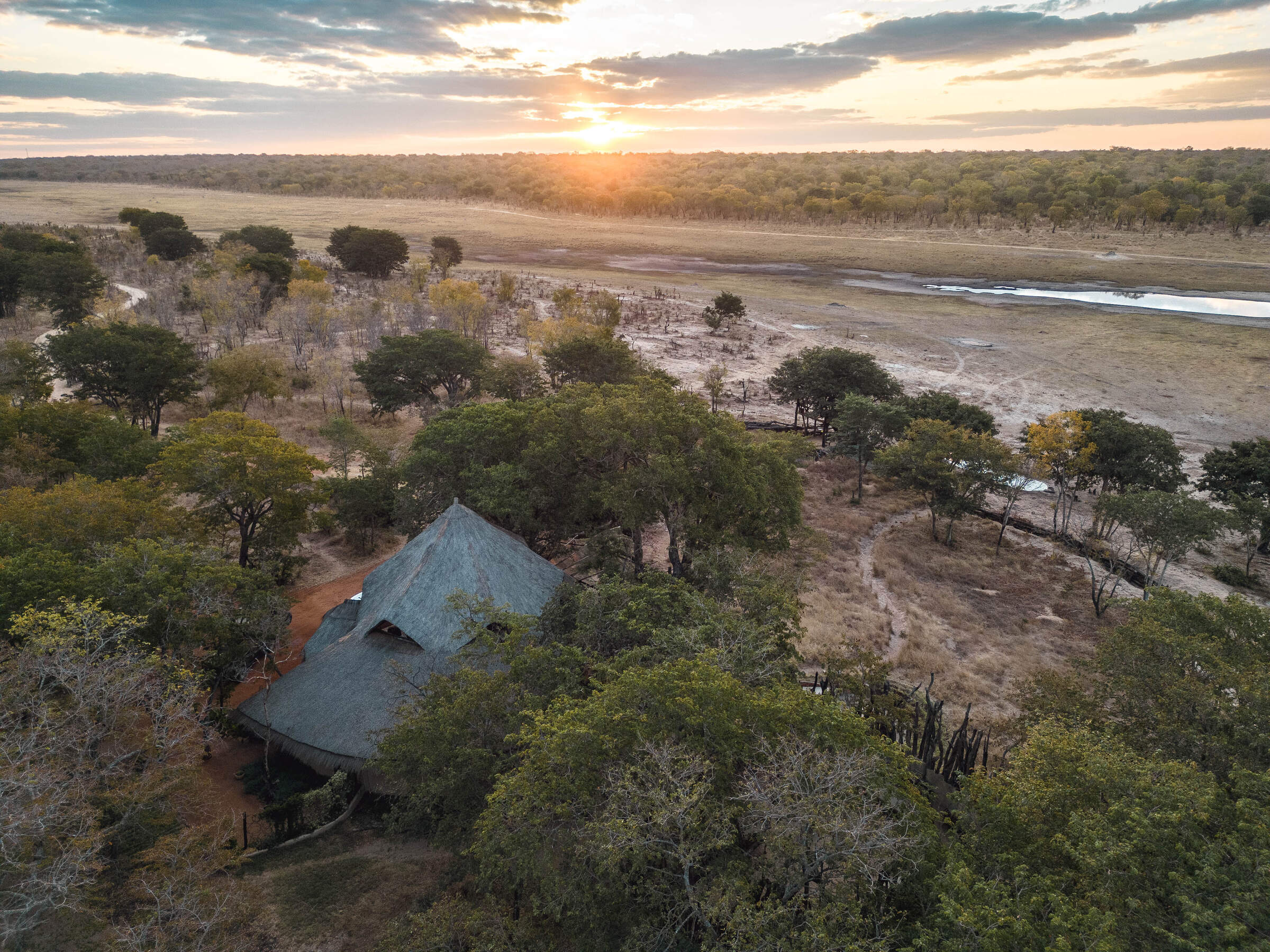
Sable Valley Lodge
Set on the 12km Dete Vlei, the recently upgraded and family-friendly Sable Valley sits in a private reserve within easy reach of Hwange National Park.
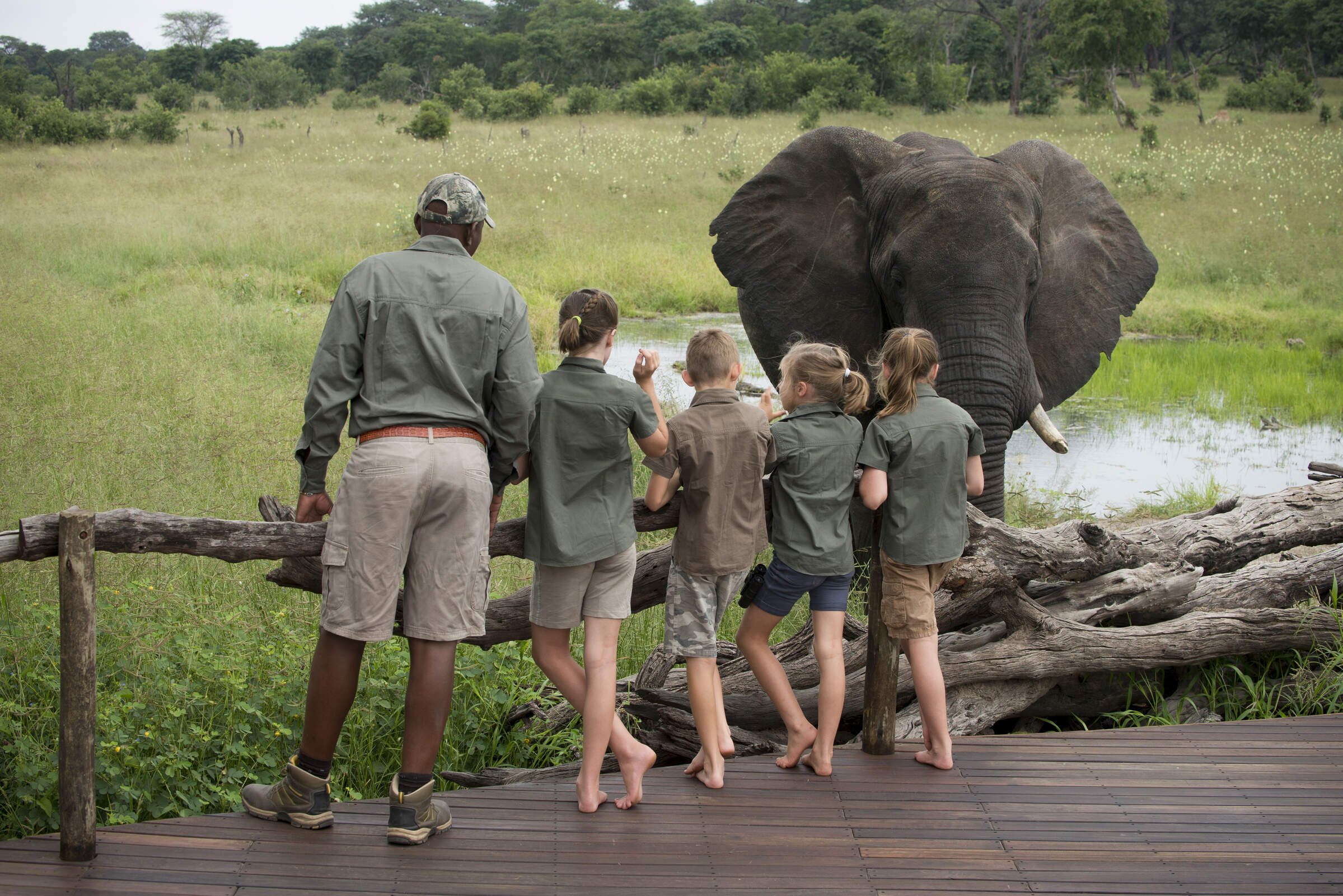
Somalisa Acacia
Somalisa Acacia is a family-friendly, yet remote and luxurious safari camp in Hwange National Park.
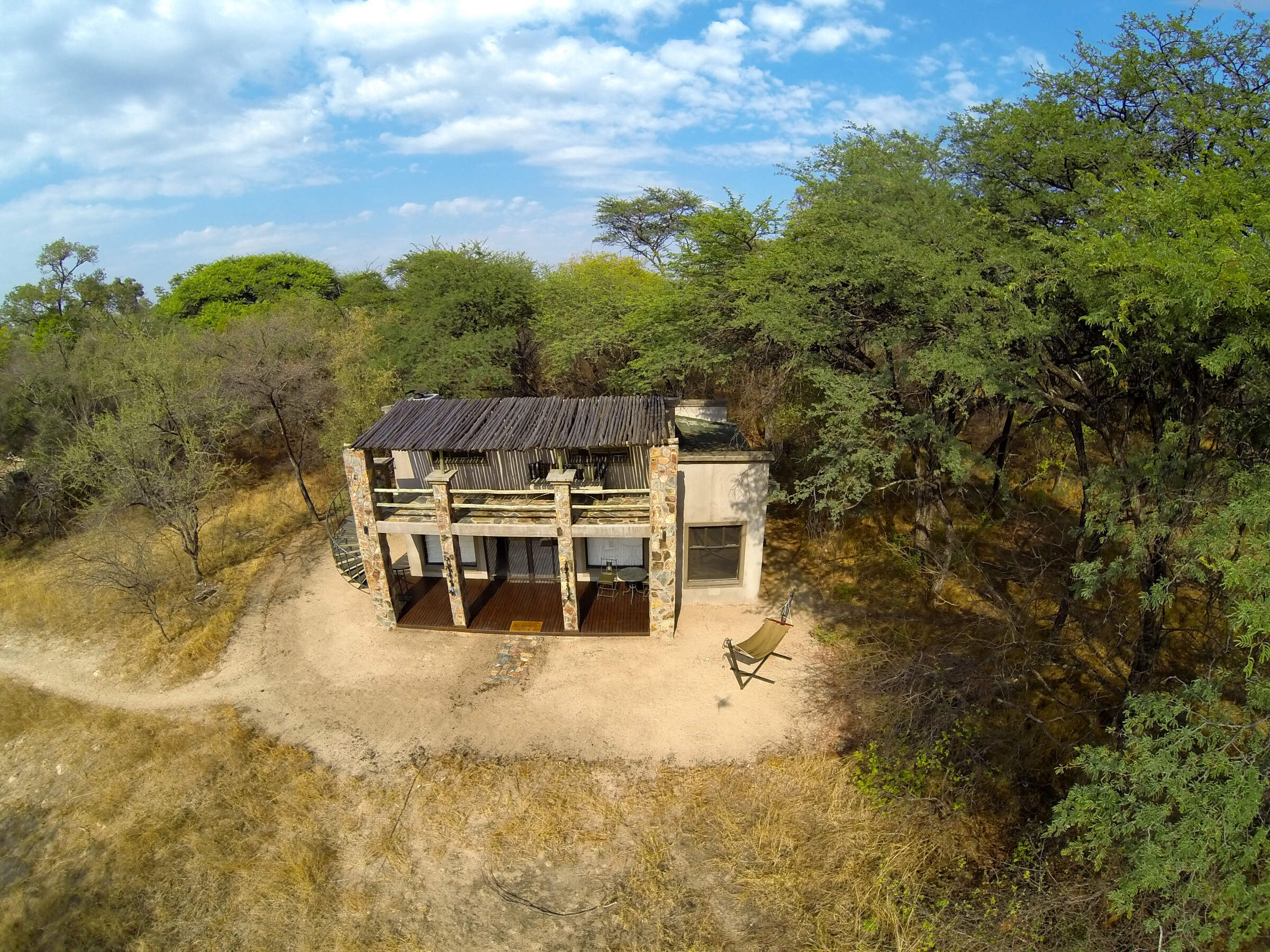
Camelthorn
Camelthorn is a stylish lodge with a range of activities in a remote region of western Zimbabwe, adjacent to Hwange National Park.
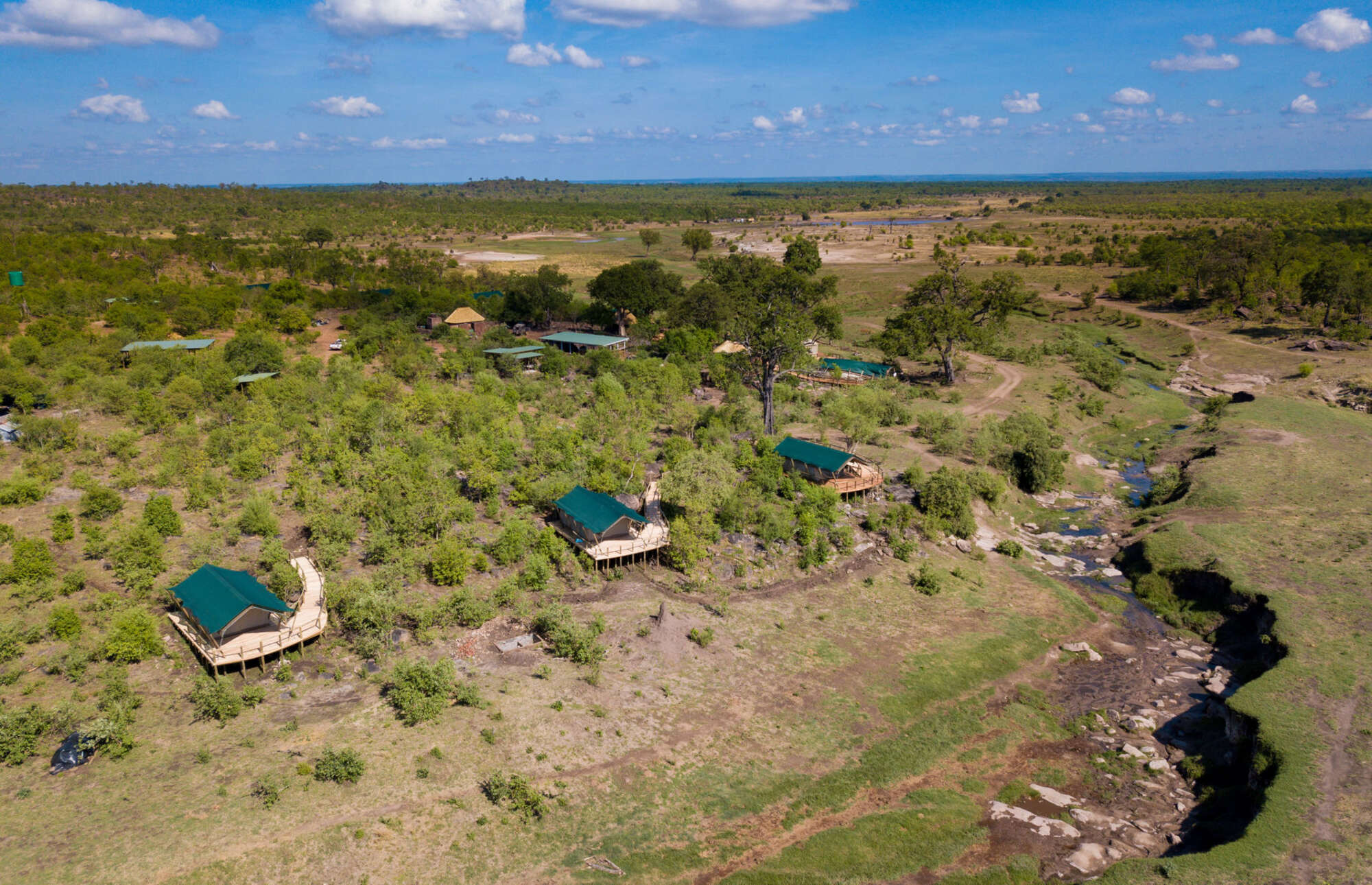
Deteema Springs Camp
In the remote north-west of Hwange National Park, Deteema Springs is a well-designed but unpretentious tented camp that offers good service and excellent wildlife potential.
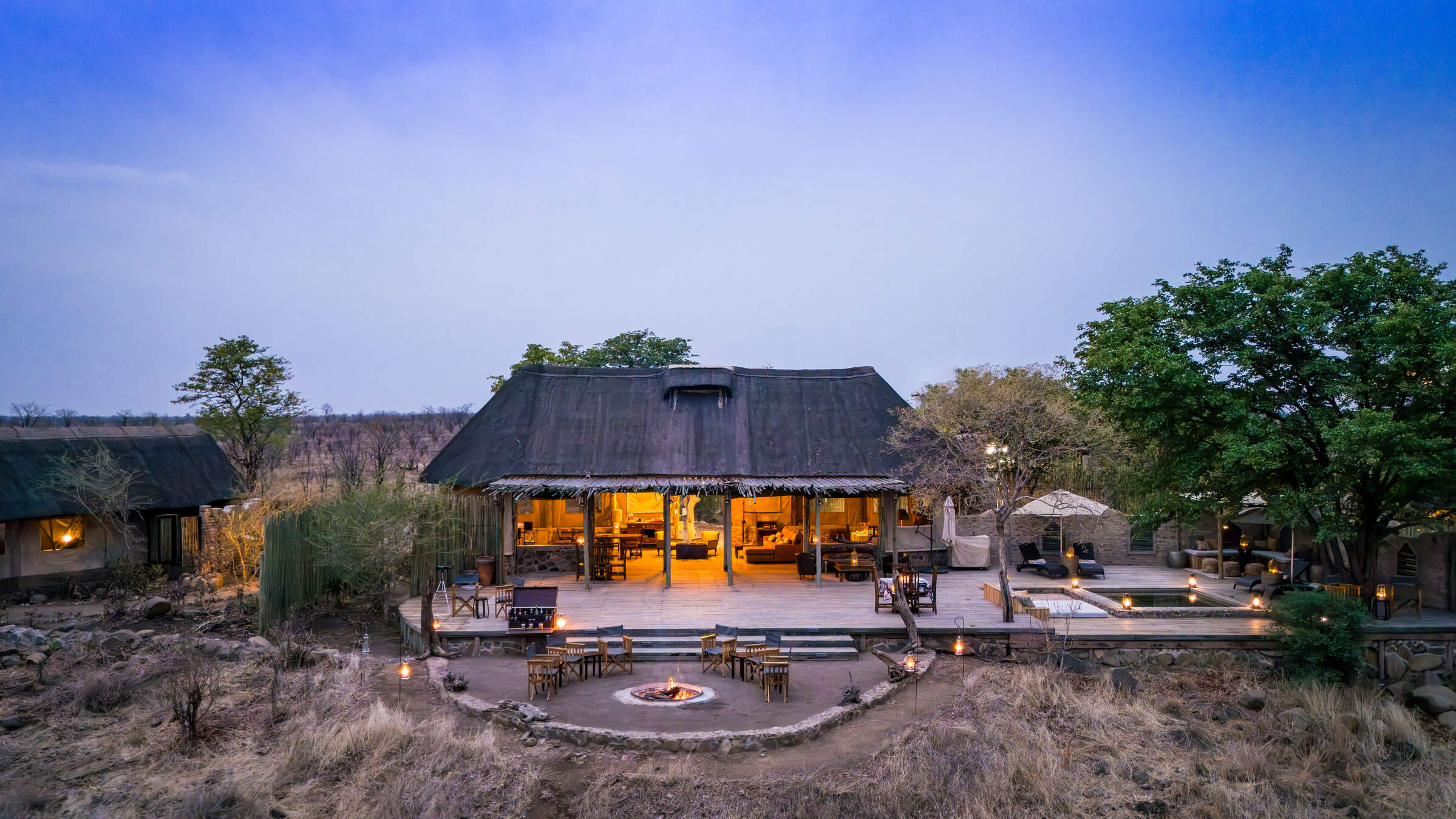
Daka Camp
One of the most remote camps in Hwange National Park, Daka Camp, like the smaller Daka Expeditions, sits almost on the border with Botswana.
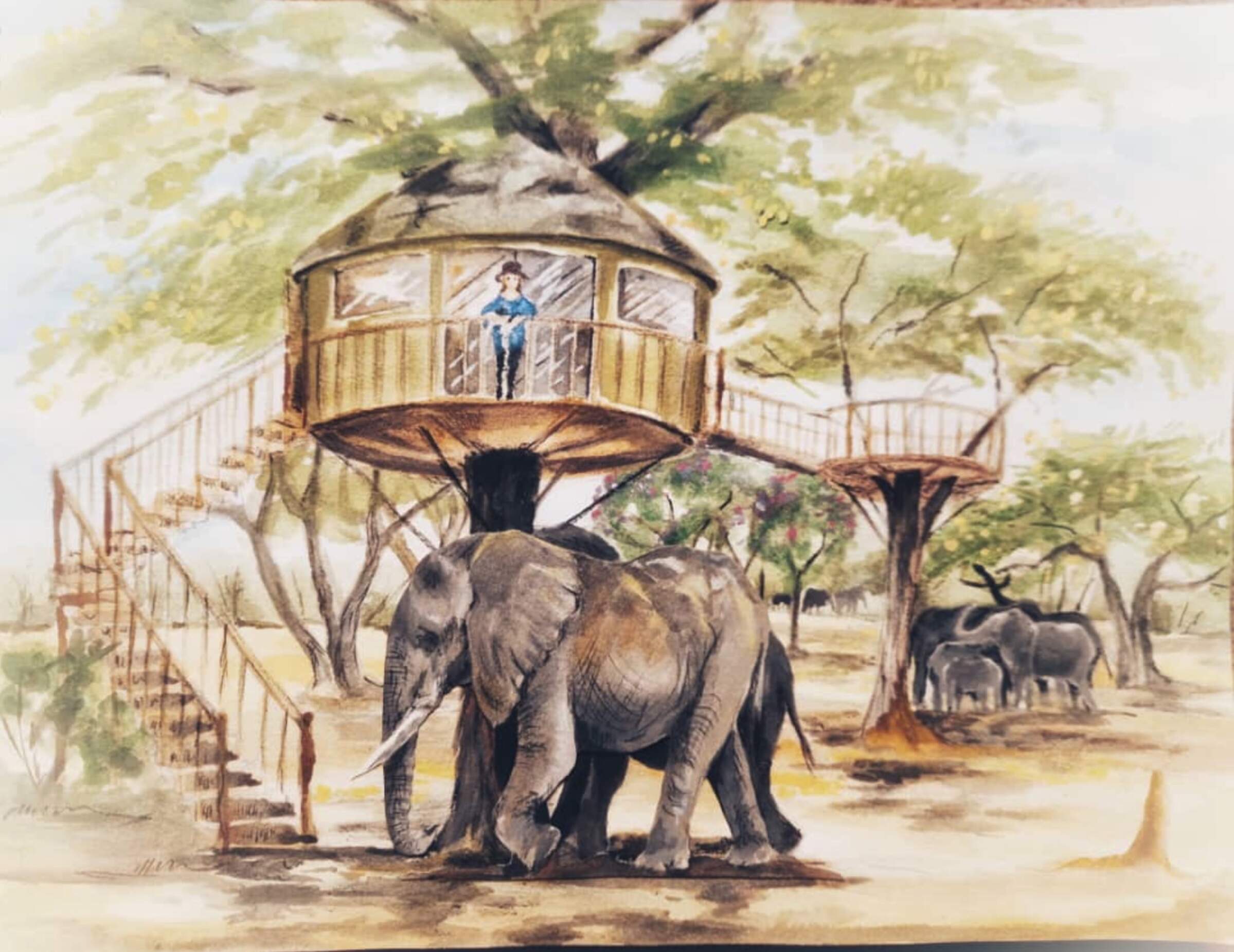
Tum Tum
The Tum Tum Treehouses are due to open in late 2025. Details on this exciting development are still scarce, so watch this space.
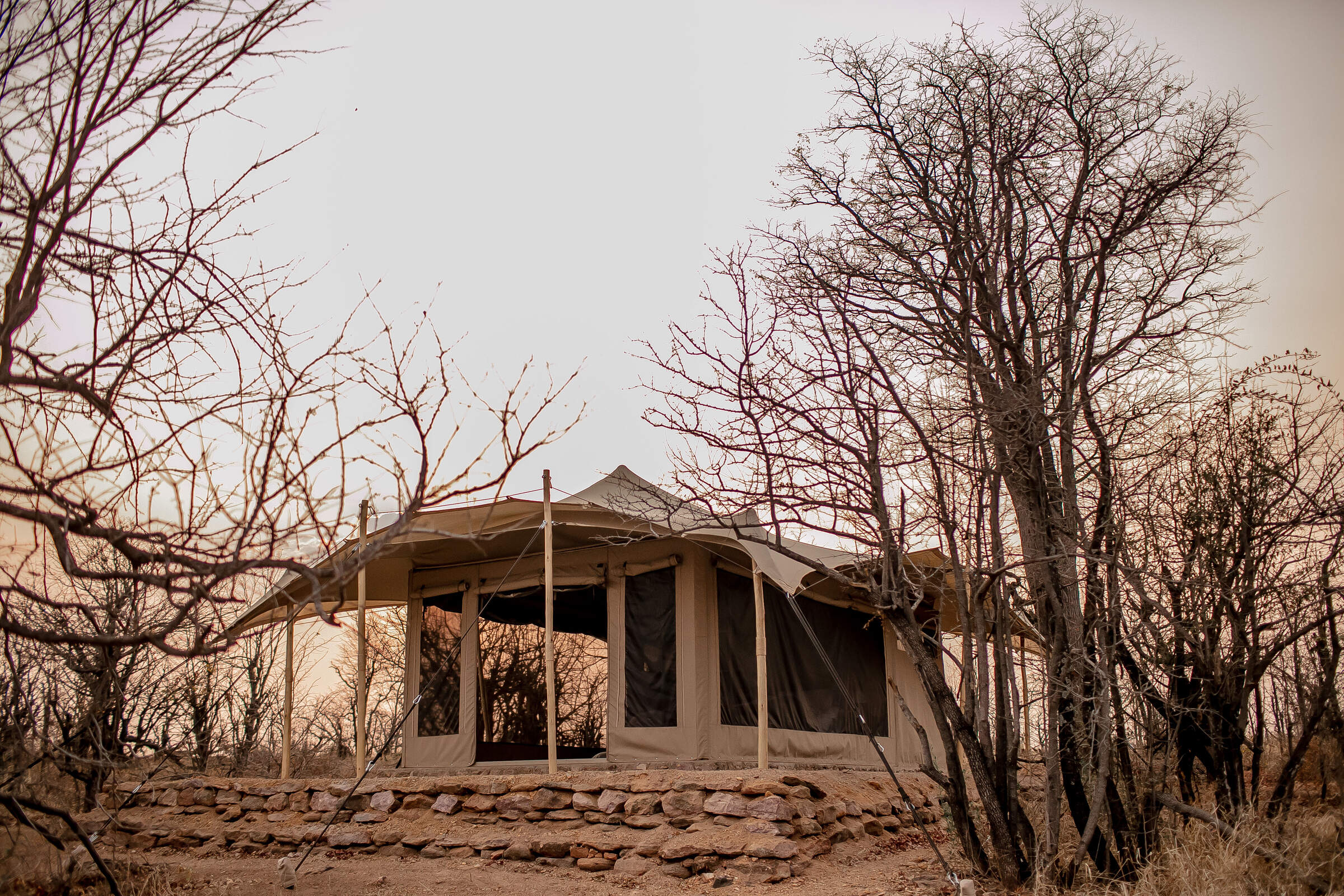
Camp Chitubu
Nestled in the rugged north of Hwange National Park, the unpretentious yet comfortable Camp Chitubu has a strong focus on excellent guiding.
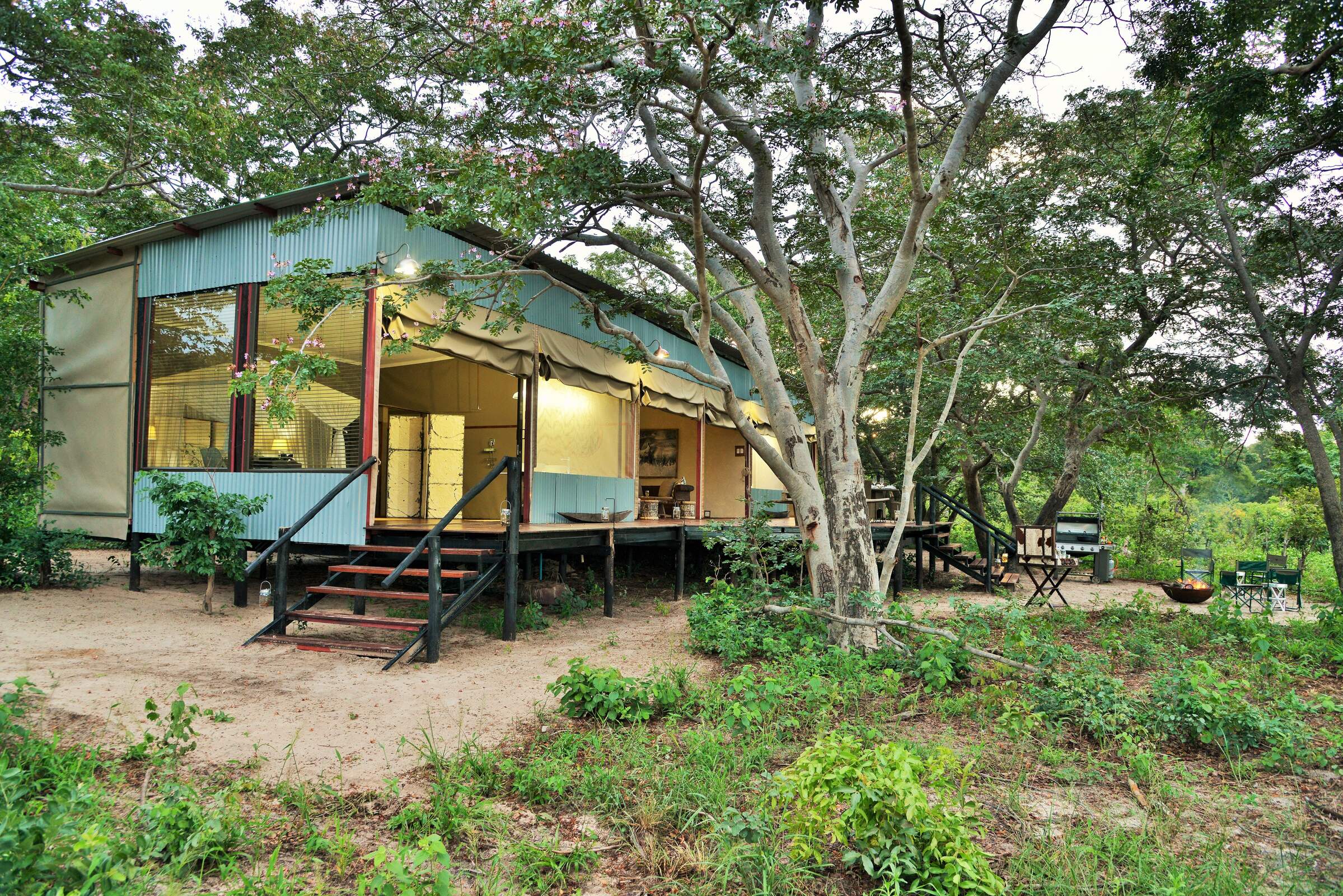
Khulu's Retreat
Just outside Hwange National Park, Khulu's Retreat is an exclusive private villa and is a great place to spoil yourself on a safari in Zimbabwe.
When to go to Hwange National Park
Our month by month guide: What it's like to visit Linkwasha Camp in Hwange National Park
Jan
Feb
Mar
Apr
May
Jun
Jul
Aug
Sep
Oct
Nov
Dec
Zimbabwe in January
January falls in the middle of Zimbabwe’s rainy season and is the wettest month of the year. Heavy rainfall occurs most days, flooding seasonal rivers and waterholes, with the occasional sunny spell.
With the high levels of precipitation the wildlife in the national parks becomes widely dispersed, taking advantage of the abundance of food and water, and is easily hidden by the thick, green bush.
While sightings of larger animals are possible, and many species drop their young at this time, game viewing is often sparse. However, many migratory species of bird arrive in Zimbabwe making it a peak month for birding.
The rains create incredibly sticky mud in Mana Pools National Park, preventing access and causing camps to close for the season. The majority of the camps in other parks remain open, with low rates attracting a smattering of visitors.
- Peak of the rainy season: hot & humid with heavy rain most days
- Bush exceptionally thick and green, with poor game viewing
- Species such as impala drop their young
- All camps in Mana Pools closed
- Very few visitors, and low rates at open camps
Our view
A time to avoid if possible
Weather in January
Zimbabwe in February
February remains well within Zimbabwe’s rainy season. Although total rainfall drops, relatively short thunderstorms can still be expected most afternoons. On the plus side, there is a greater chance of some sunshine in-between.
Much of the country remains waterlogged, closing access to Mana Pools and severely restricting walking safaris in other parks. While game drives and canoeing remain an option, the abundance of water disperses animals, and thick grass can make it difficult to spot larger species, but birding remains excellent. Conversely, this is a great time of year to view the landscape, and is excellent for photographers. Sporadic cloud cover and clear air can make for some spectacular sunsets too, particularly over Lake Kariba and the Zambezi River where the reflections off the water add to the beauty.
- Generally wet with frequent thunderstorms & hot humid days
- Poor wildlife viewing due to dispersed animals & thick bush
- Clear air, green landscapes & exceptional sunsets
- All camps in Mana Pools closed
- Very few visitors & low rates at camps that are open
Our view
This is not a great time to visit
Weather in February
Zimbabwe in March
March is the final month of Zimbabwe’s rainy season, when the rains start to trail off and sunny days become the norm. However, some days the clouds can still build, breaking into thunderstorms in the afternoon.
Mana Pools remains closed throughout the month but the majority of camps in Hwange, Matusadona and Gonarezhou remain open. Here, the landscape is green and alive, with migrant species of birds taking advantage of the abundant insect life. Larger animals remain elusive though, and walking safaris remain restricted.
By this time of year, the rains have normally trickled down to the Zambezi River and the flow of water over the Victoria Falls starts to increase, but without kicking up too much spray to obscure the views.
- Last month of the rainy season: hot, humid days with occasional storms
- Lush vegetation means good birding, but poor game viewing
- Views of the Victoria Falls improve
- All camps in Mana Pools closed
- Open camps have few visitors & low rates
Our view
This is not a great time to visit
Weather in March
Zimbabwe in April
April marks the end of Zimbabwe’s rainy season and the end of summer. Clear skies are the norm, with just the occasional shower. Temperatures start to drop, failing to reach 30ºC most days and dropping down to around 10ºC at night.
As the rain fades the landscape starts to dry out. While the vegetation remains thick and green, the soil in Mana Pools dries enough for camps to open, and the only camps to remain closed are the most remote bushcamps in Hwange. Although viewing of larger animals remains tricky, the improved weather starts to draw back visitors, as do prices significantly below those in the peak season.
The Zambezi River and flow of water over the Victoria Falls is at its highest, although large amounts of spray diminish views of the waterfall itself.
- Transitional period, with much lower rainfall & falling temperatures
- Wildlife is still dispersed & hard to see, but sightings improving
- Views of the Victoria Falls often obscured by spray
- Camps in Mana Pools open
- Visitors start to return & camps increase their rates
Our view
A good time to visit, with pros & cons
Weather in April
Zimbabwe in May
The first month in the dry season, May is also Zimbabwe’s first month of winter. If the rains are particularly late in a given year, you may catch the odd shower, but you can expect clear and sunny days the majority of the time. While it’s warm in the daytime, temperatures drop to single digits at night, so bring a warm jumper and gloves for early morning drives.
With the rain having cleared the air, the sky is bright blue, and it’s the best time of year for photography.
Even the most remote camps in Zimbabwe are now open. With the lack of rainfall, vegetation dies back significantly, and seasonal rivers return to sand. Not only does this open up the possibility of walking safaris, but wildlife viewing becomes much more reliable.
- Start of the dry season, with milder days and cold nights
- Game viewing significantly improves as vegetation dies back
- Vegetation starts to turn from green to brown
- Best time for photography with crystal clear air
- Visitors start to return; all camps open & rates increasing
Our view
A very good time to visit
Weather in May
Zimbabwe in June
During June you can virtually be guaranteed of dry and sunny days, although temperatures continue to drop, and can get close to freezing at night in Hwange National Park. Jumpers, jackets and gloves are strongly recommended for early mornings and evenings.
The opportunities for wildlife viewing improve throughout the month as the landscape rapidly dries, and the animals start to gather on the banks of the Zambezi River and around Hwange’s waterholes.
Water levels in the Zambezi River start to drop, reducing the amount of spray kicked up at the Victoria Falls and greatly improving visibility, but still allowing a full curtain of water to cascade over the edge.
- Middle of winter, with night-time temperatures close to freezing
- Game viewing significantly improves throughout the month
- Views of the Victoria Falls are at their best
- Noticeable increase in visitor numbers
- Camps considerably more expensive
Our view
A very good time to visit
Weather in June
Zimbabwe in July
July sits in the middle of Zimbabwe’s dry season. Although it’s warm at midday, temperatures are generally cold and in Hwange it’s been known to drop below freezing at night, with the lower-altitude Mana Pools feeling a bit warmer.
With wildlife clustering around the few remaining waterholes, sparse vegetation, and some of the best views of the Victoria Falls, this is one of the most popular times to travel, with camps charging peak season rates to reflect this. That said, visitor numbers to the country in general remain low, and outside of the Victoria Falls it’s rare for any areas to feel crowded.
- Middle of the dry season with almost no chance of rain
- Clear sunny days, but very cold nights
- Wildlife viewing good; game drives and walking safaris unrestricted
- Views of the Victoria Falls at their best
- Camps charging peak season rates
Our view
A very good time to visit
Weather in July
Zimbabwe in August
While August is the end of winter and temperatures are starting to creep up, mornings and nights are still cold, and game drives in open vehicles can feel particularly chilly. Well into the dry season, the landscapes will have mostly transformed from green to brown and wildlife viewing in Zimbabwe’s national parks is approaching its best. Due to dust kicked up into the atmosphere and smoke from bush fires you may start to notice a haze on the horizon, but this doesn’t significantly impact photography.
August is one of the most expensive months, and the pleasant weather and decent game viewing attracts lots of visitors. While the national parks rarely feel crowded, Victoria Falls accommodation can sell out a year in advance.
- Warm, sunny days but cold mornings & nights; almost no chance of rain
- Wildlife viewing nearly at its best
- Landscape turns brown, & an atmospheric haze develops
- All camps charging peak season rates
Our view
Fantastic: the very best time to visit
Weather in August
Zimbabwe in September
Temperatures in September rarely drop below 15ºC, but are yet to reach the oppressive highs of summer. It will normally have been five months since the last drop of rain, so antelope and elephants cluster around whatever water remains, with predators never too far away.
The landscape is very brown, and the haze building on the horizon takes some of the colour out of the sky, so while animal subjects are plentiful, the background is not ideal for photography.
The combination of incredible wildlife viewing, hot and sunny weather, and cheaper flights outside of the school holidays make this the most popular time of year to travel, and availability at the camps can become limited up to a year in advance.
- The best month for weather, with a pleasantly warm temperature range
- One of the best months for game viewing
- Victoria Falls starting to dry but still impressive on Zimbabwean side
- All camps are charging peak season rates
- Most popular time to travel, & space can be limited
Our view
Fantastic: the very best time to visit
Weather in September
Zimbabwe in October
October is the last month of the dry season with little chance of rain but building humidity. While the higher elevation of Hwange National Park limits temperatures to the 30s Celsius, they can easily top 40ºC in Mana Pools.
With little vegetation or water, wildlife is drawn to the few remaining water sources and viewing is at its best; visitors who brave the heat can be rewarded with some exceptional sightings, although haze in the air diminishes photos. Maximum visibility and dense wildlife concentrations can also make for very rewarding walking safaris, although the heat can make them uncomfortable.
Water levels in the Zambezi at the Victoria Falls drop significantly, and large stretches of the waterfall are a dry cliff-face – although it never dries completely. Camp rates remain at their peak, but visitor numbers drop as people avoid the heat.
- Last month of the dry season; very hot with building humidity
- Wildlife viewing at its very best
- Dust & smoke in the air diminish photographic opportunities
- Victoria Falls starting to look very dry
- Camp rates remain at their peak
Our view
A very good time to visit
Weather in October
Zimbabwe in November
November is a transitionary period, with high temperatures and humidity. While they can’t be predicted with any precision, the first rains normally arrive halfway through the month, in the form of thunderstorms lasting a few hours each day.
Early November is a popular time to travel as the camps drop their rates, so if you’re lucky you can get peak-season game viewing at low-season rates. This is a gamble though as if the rains do arrive, animals are no longer limited to a few dangerous waterholes and will disperse into the bush. While all the camps in Mana Pools intend to remain open, the rains can make the airstrips unusable so you may find yourself moved to a different park, a risk that increases through the month.
- Typically the start of the rains in Zimbabwe
- Temperatures & humidity levels remain high
- Wildlife viewing rapidly diminishes as the rains arrive
- Camps remain open, but risk early closure in Mana Pools
- Much cheaper time to travel as camps drop their rates
Our view
A good time to visit, with pros & cons
Weather in November
Zimbabwe in December
By December the rainy season has begun in earnest; this is one of the wettest months in Zimbabwe, with heavy thunderstorms most afternoons and occasionally continuous rain for a couple of days. While temperatures start to cool down the high levels of humidity can make the heat feel more oppressive.
With the rains comes an explosion of green growth, and the dust and smoke are washed out of the air. The resulting scenery – with the occasional bright blue skies – can be fantastic for photographers. Thick vegetation and plentiful water makes viewing of larger animals tricky, but with migratory species arriving the birding is at its best.
All camps in Mana Pools and the remote Hwange camps close, with those remaining open charging their lowest rates.
- One of the wettest months in Zimbabwe
- High temperatures & levels of humidity
- Wildlife viewing poor, but birding good
- Lush green landscapes & clear air; great for landscape photography
- All camps in Mana Pools closed
Our view
This is not a great time to visit
Weather in December

Looking for inspiration on where to travel next?
Visit our trip chooser to explore your options and find inspiration for your perfect African adventure
Inspire me